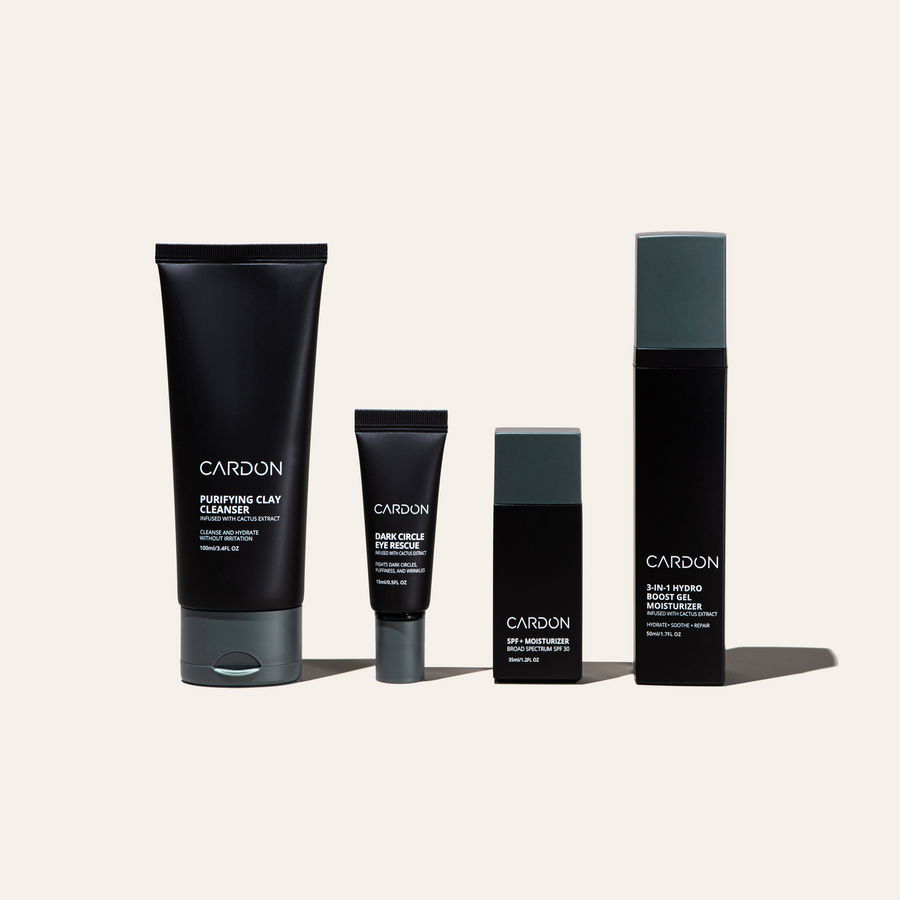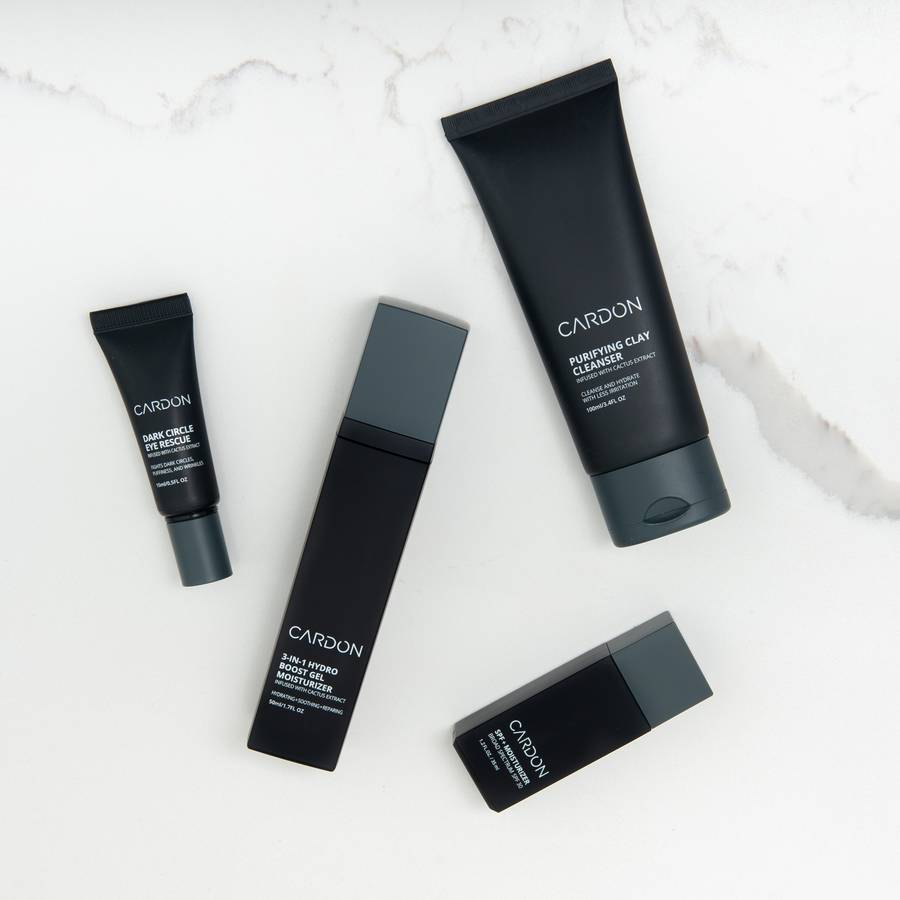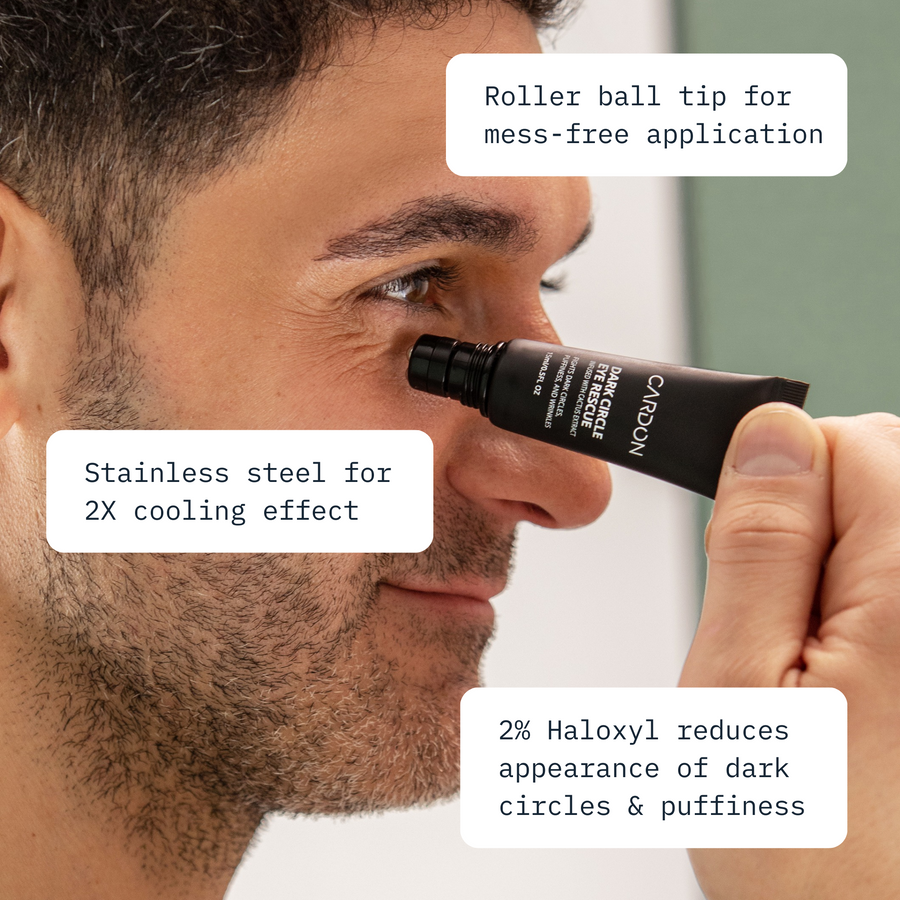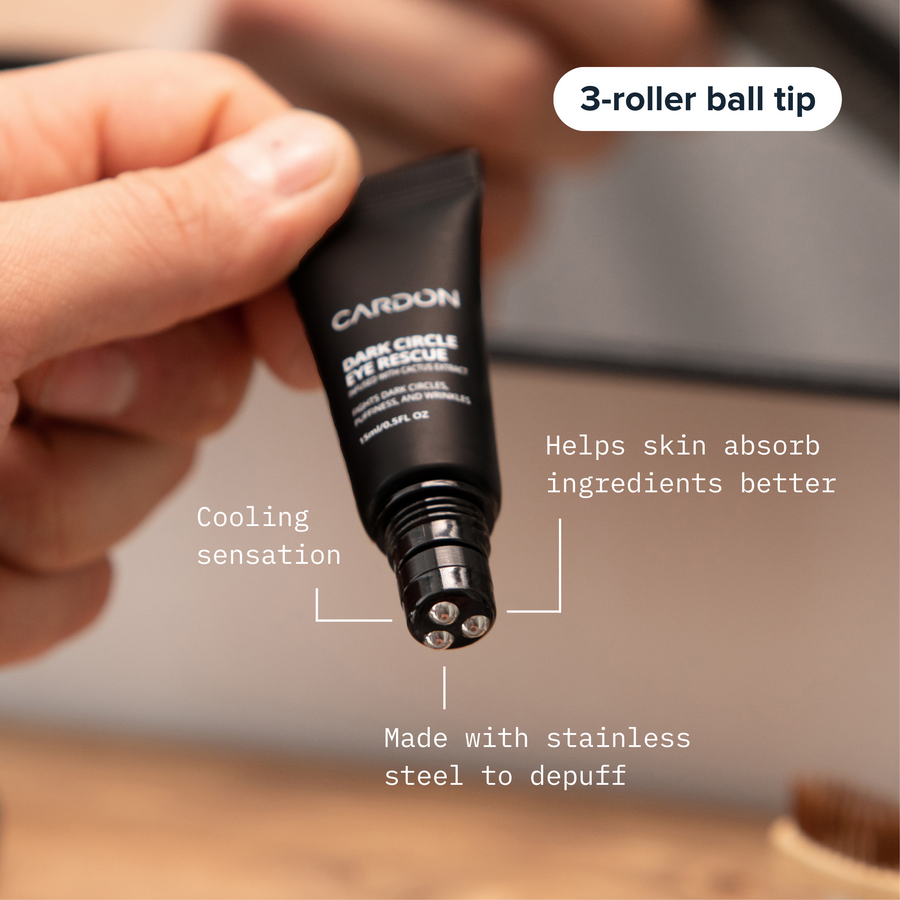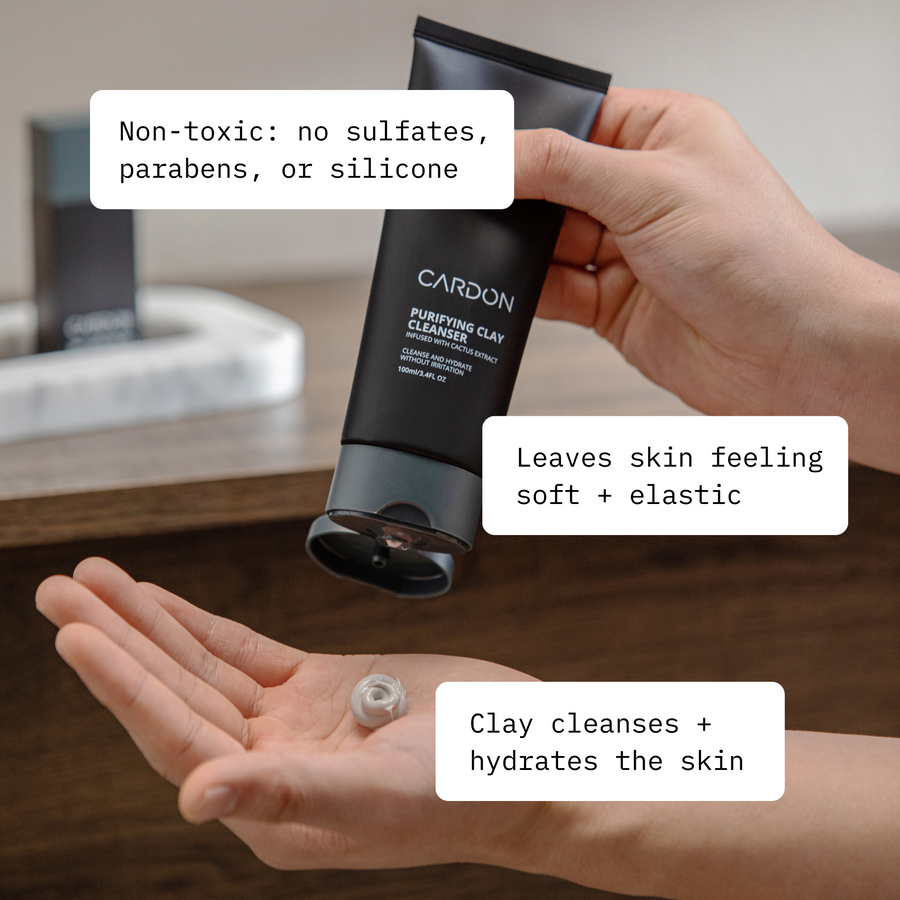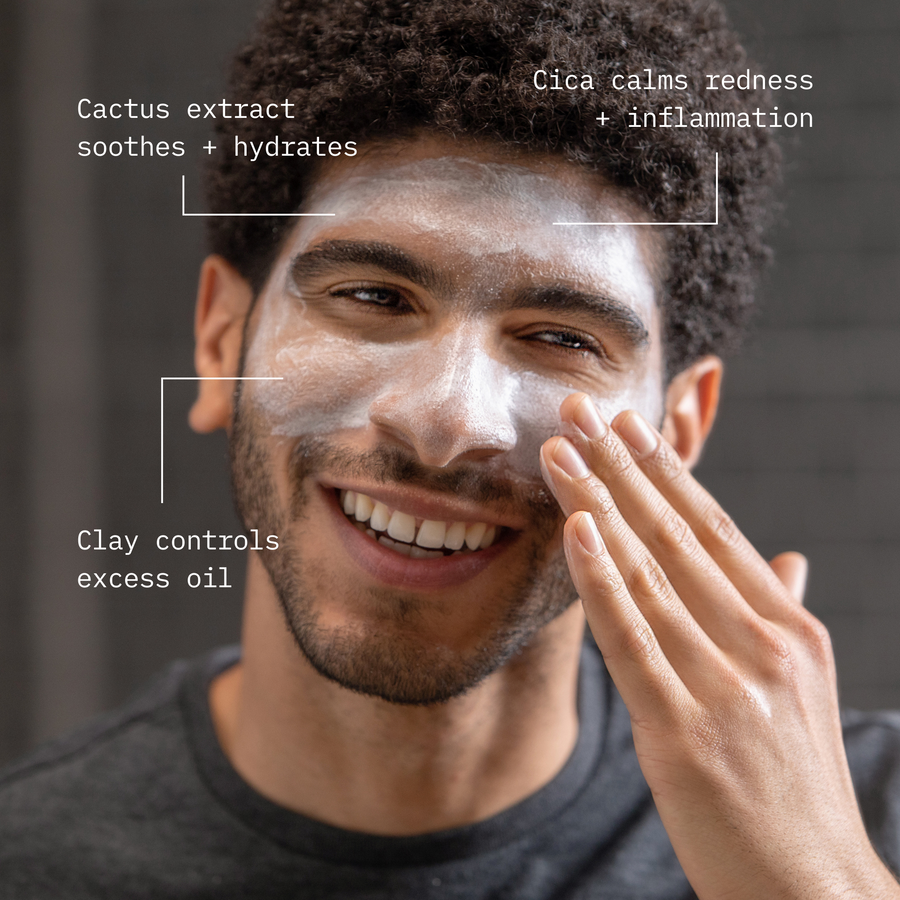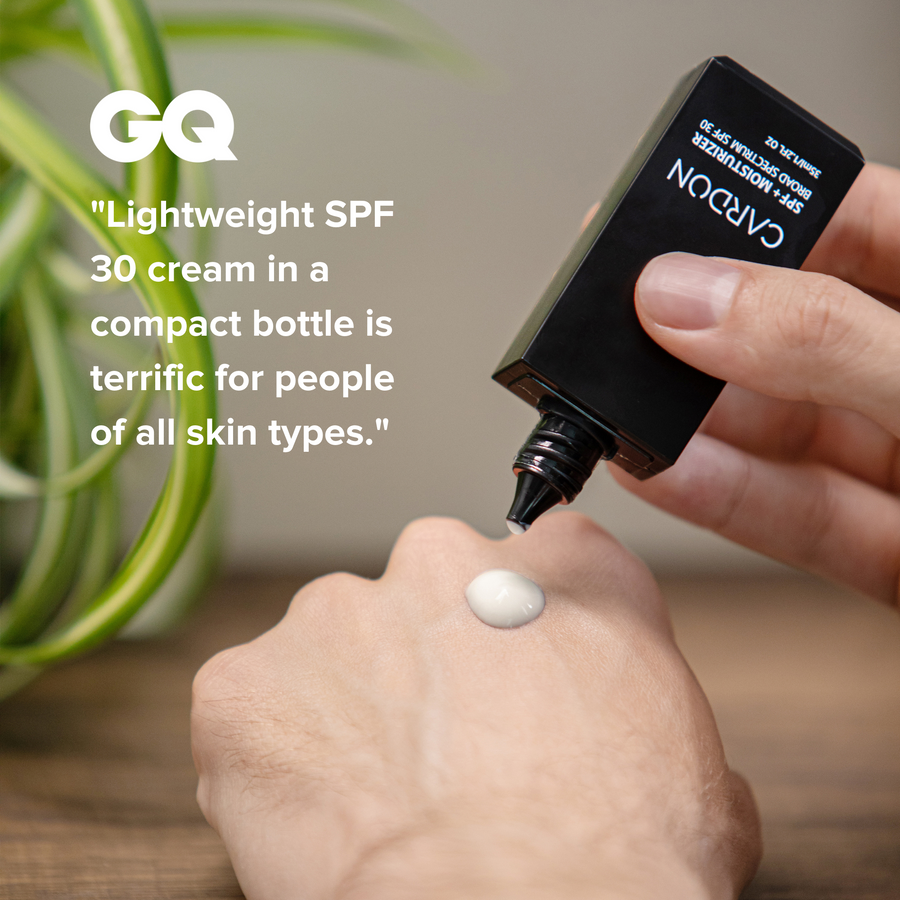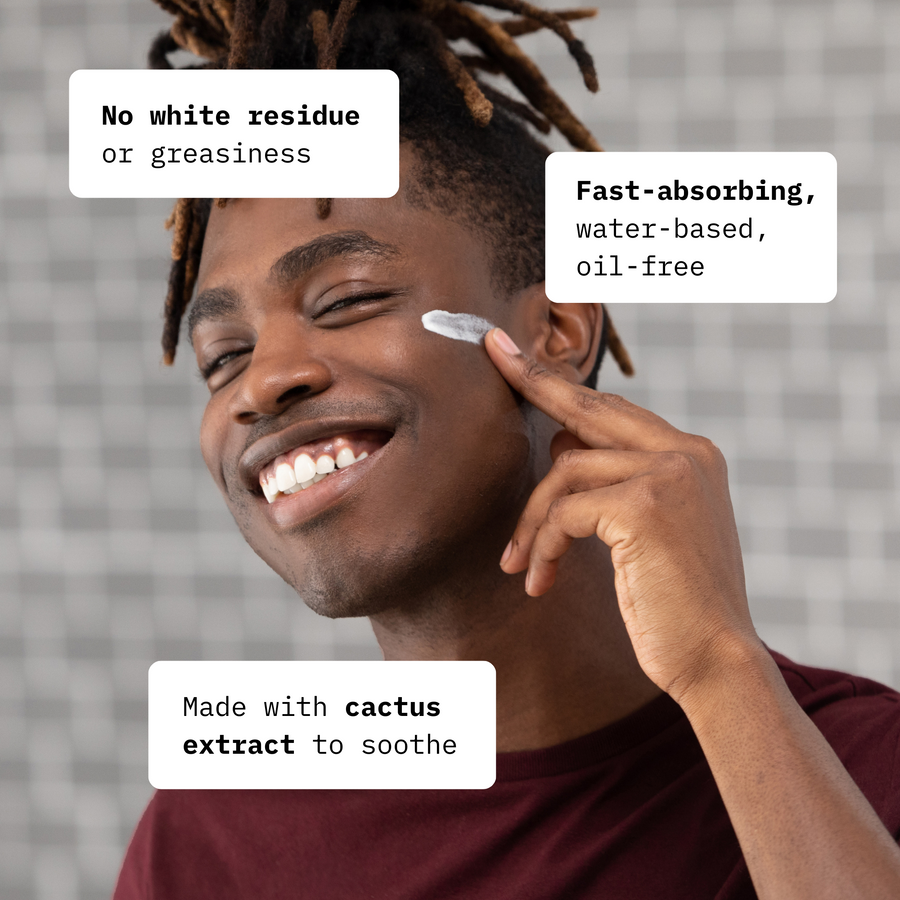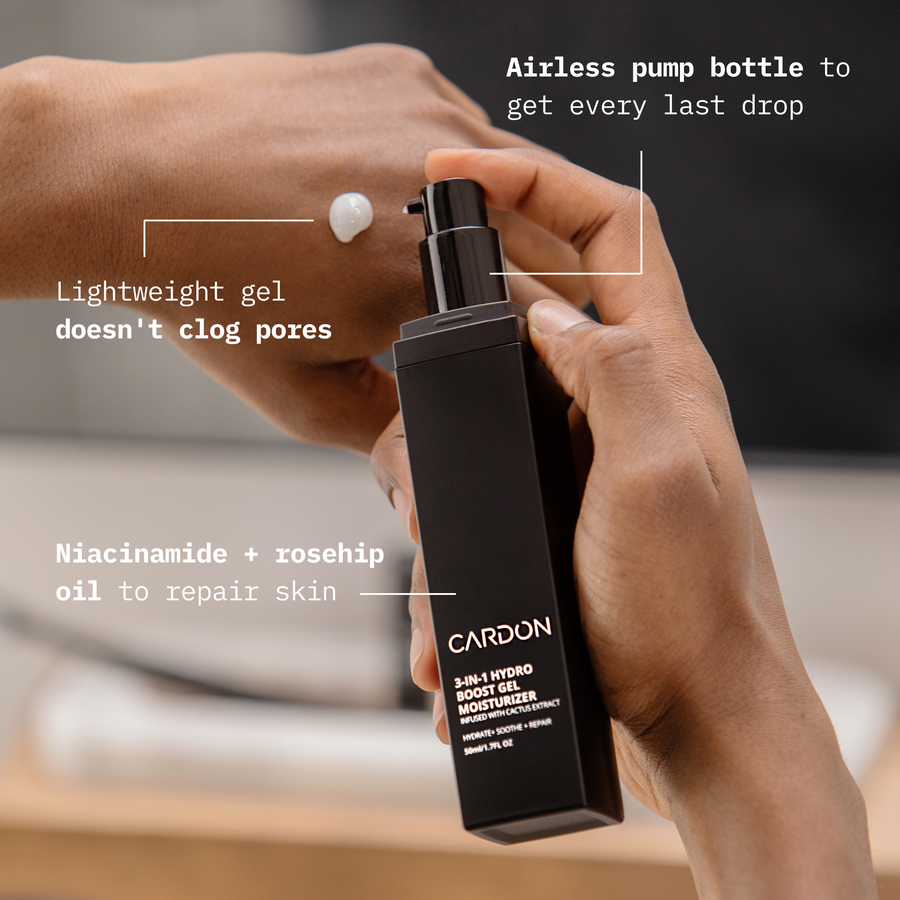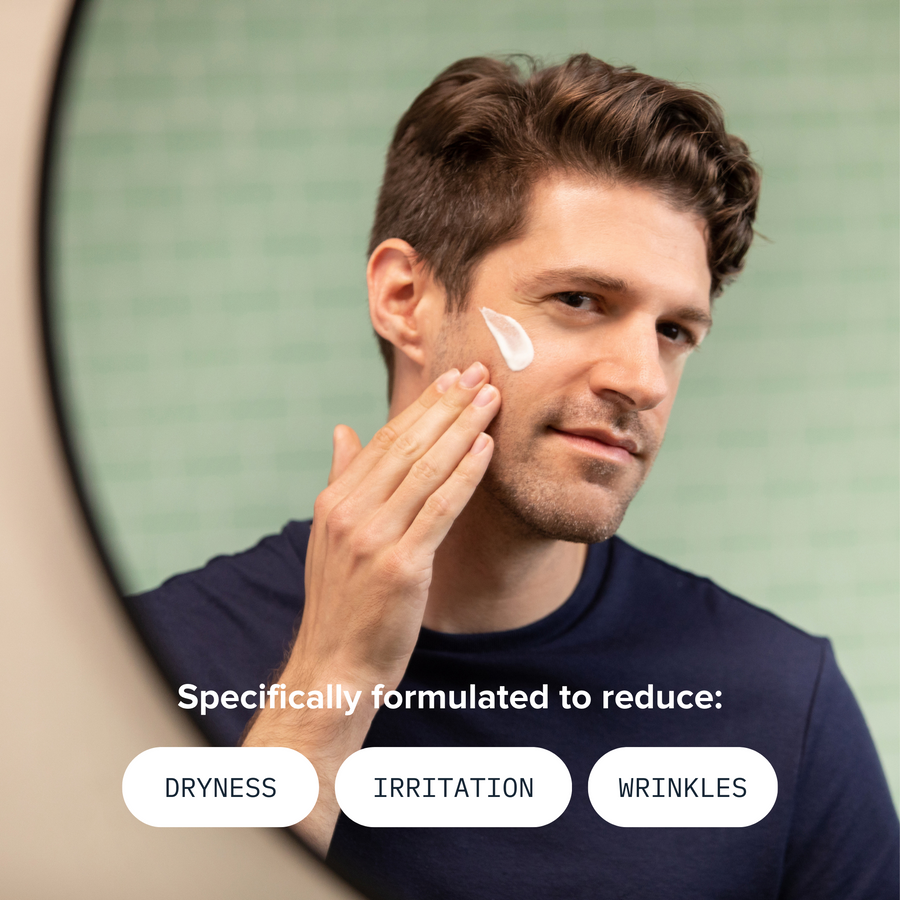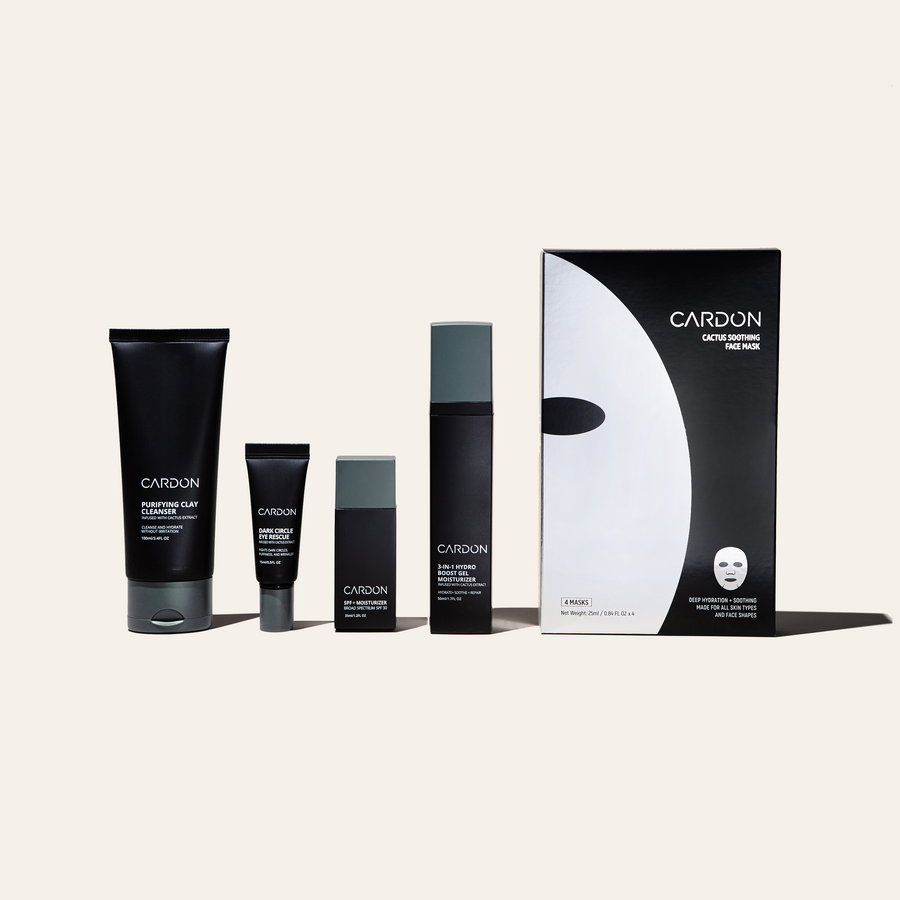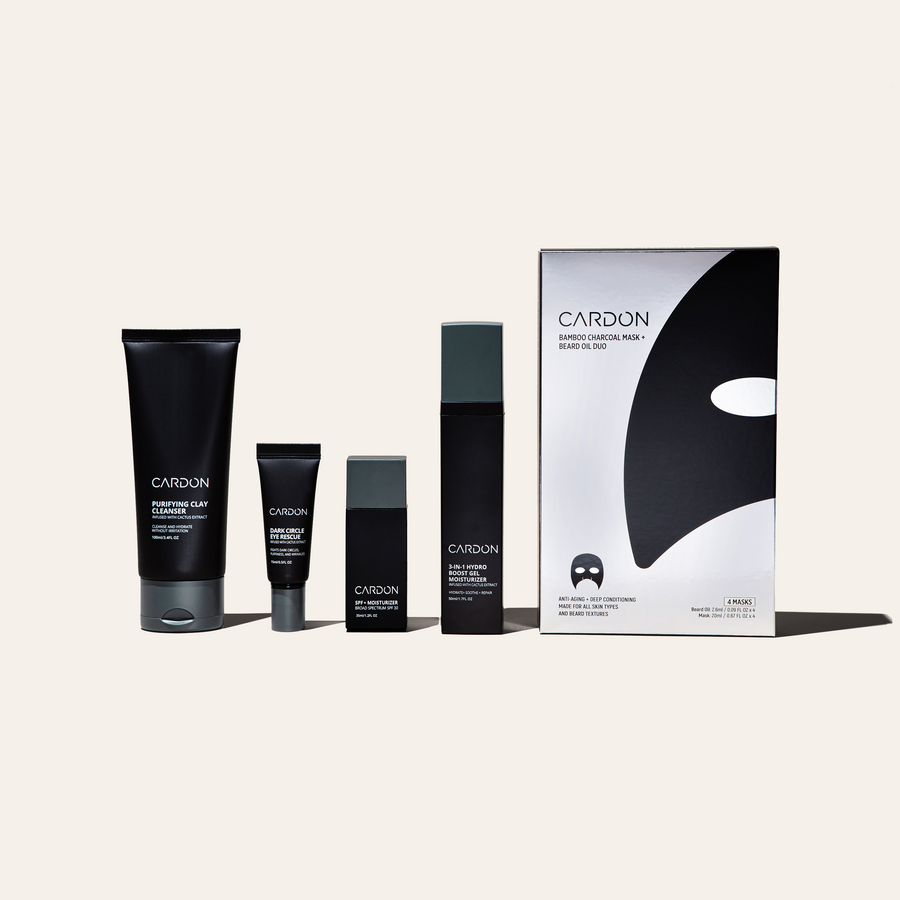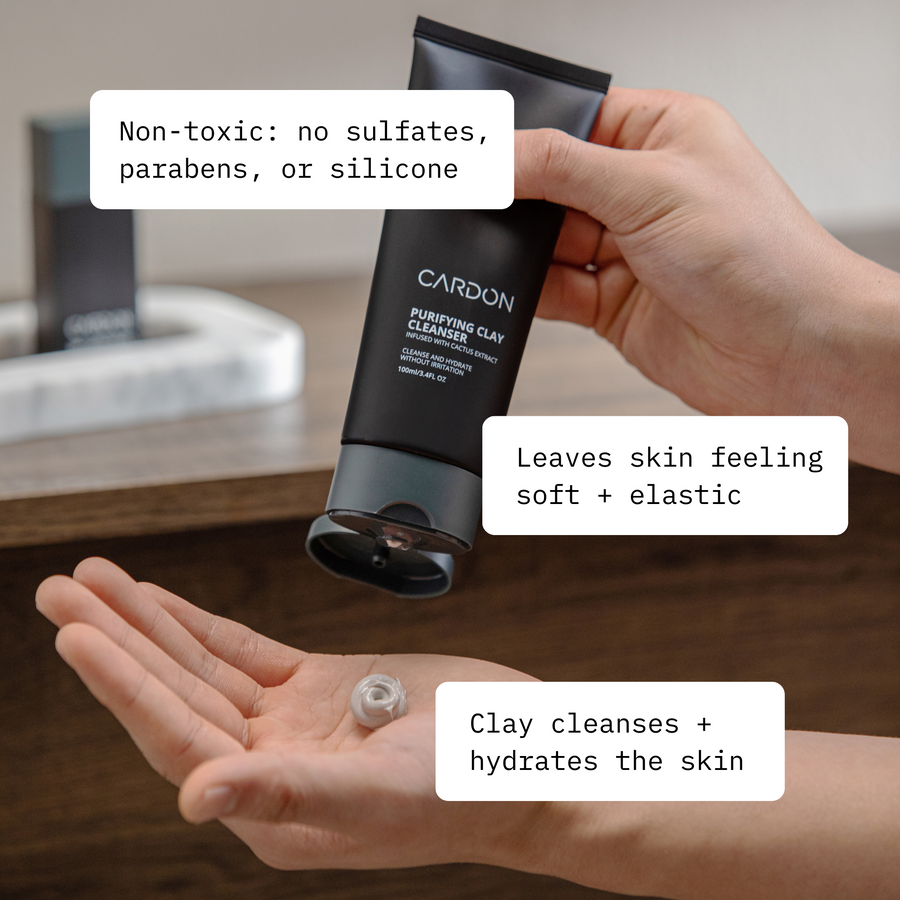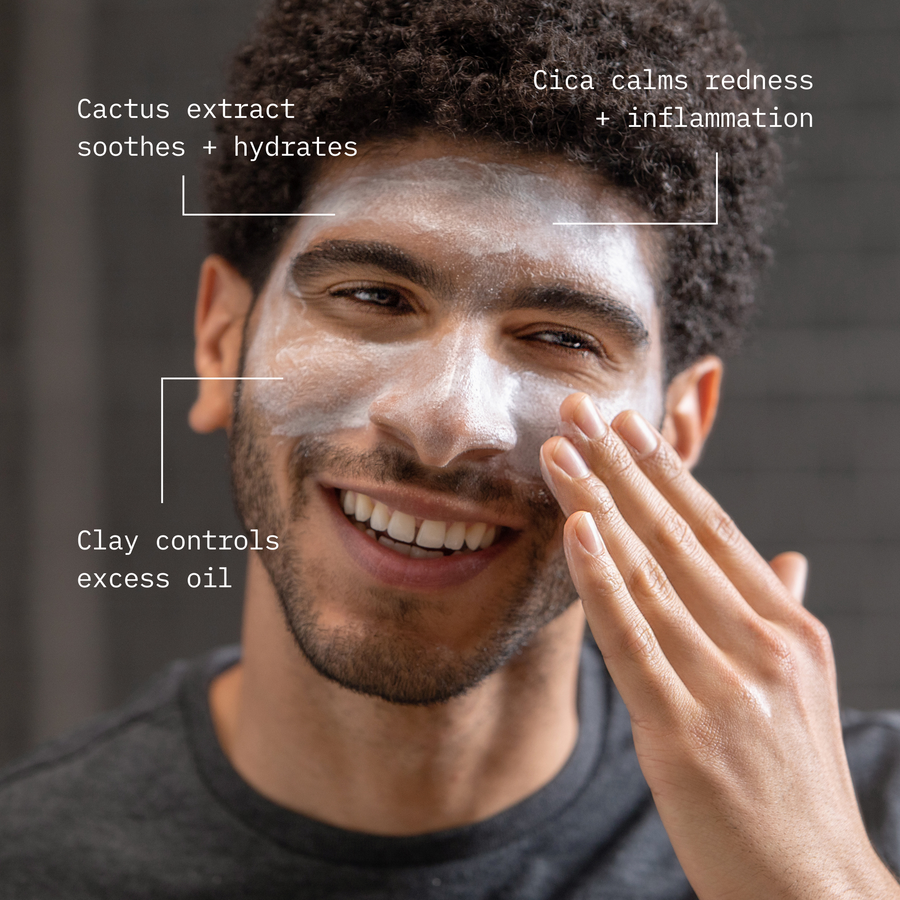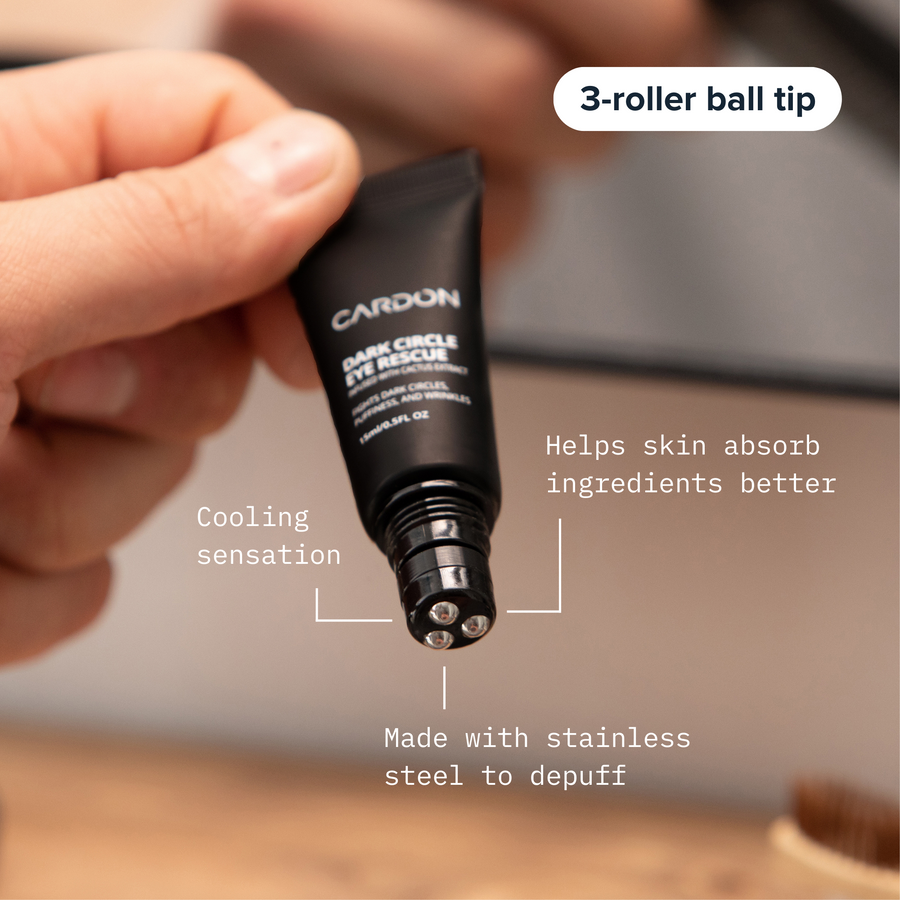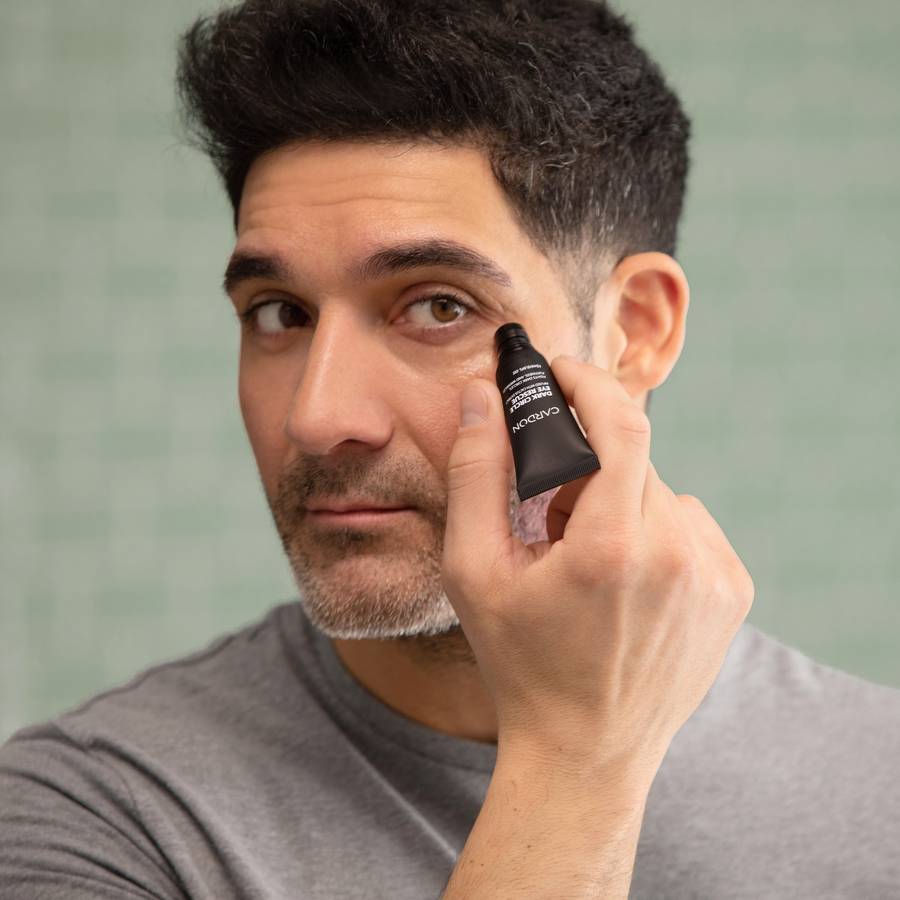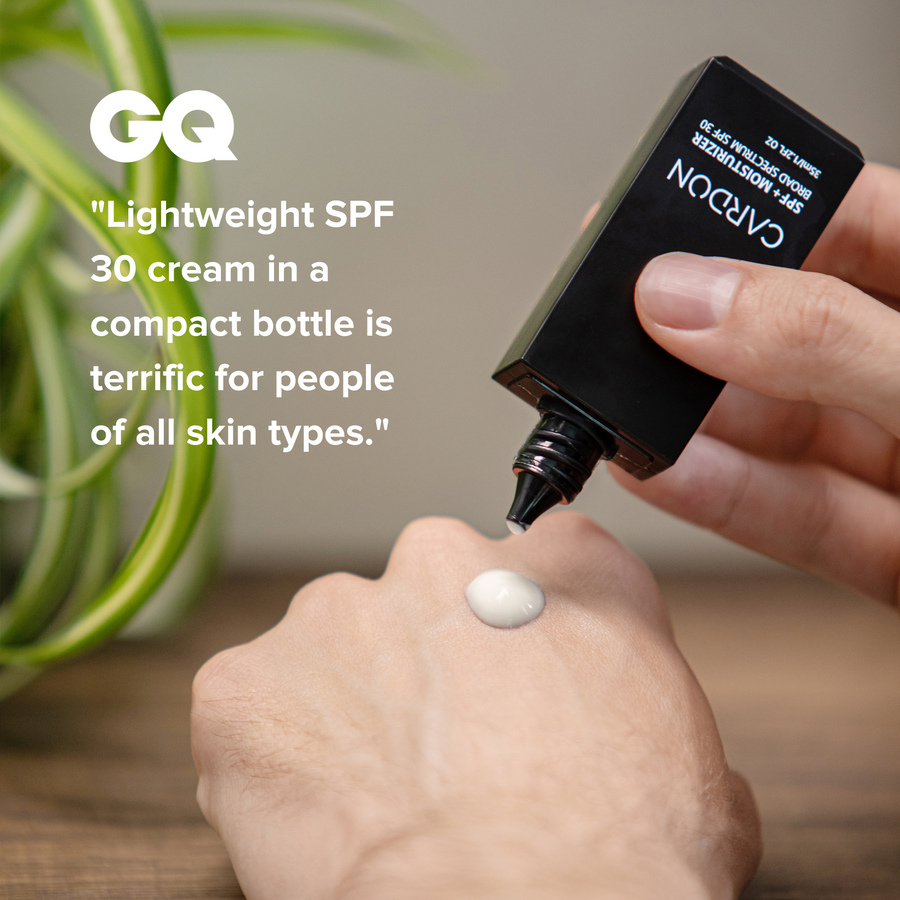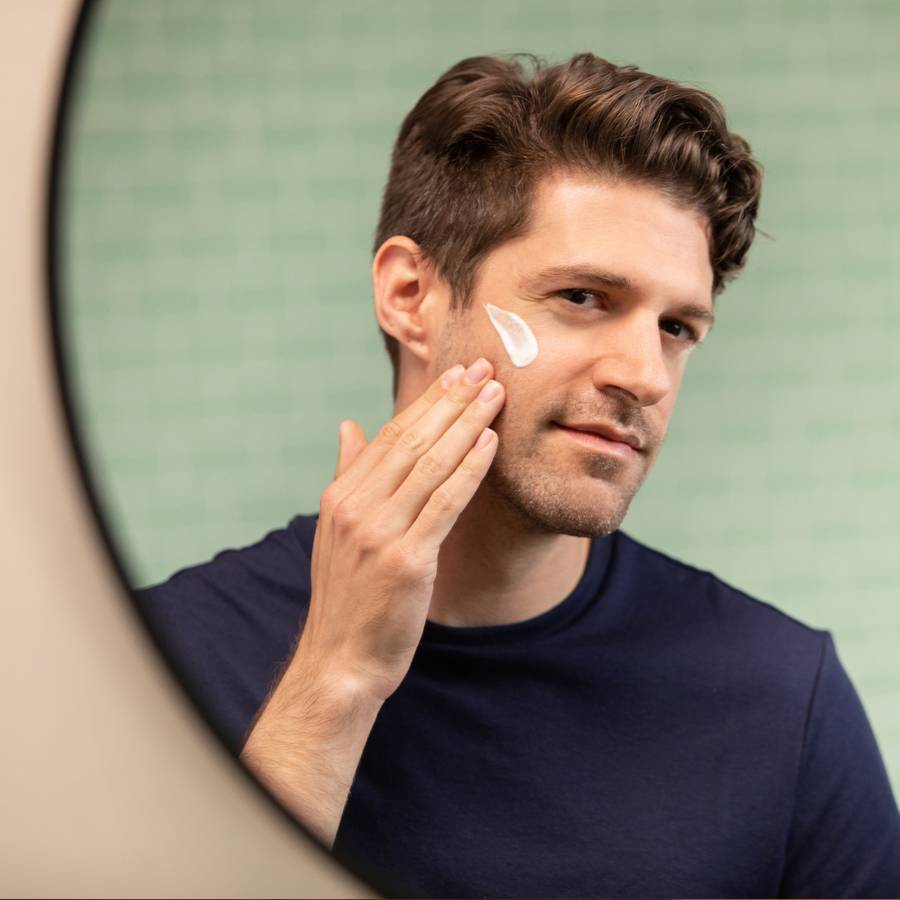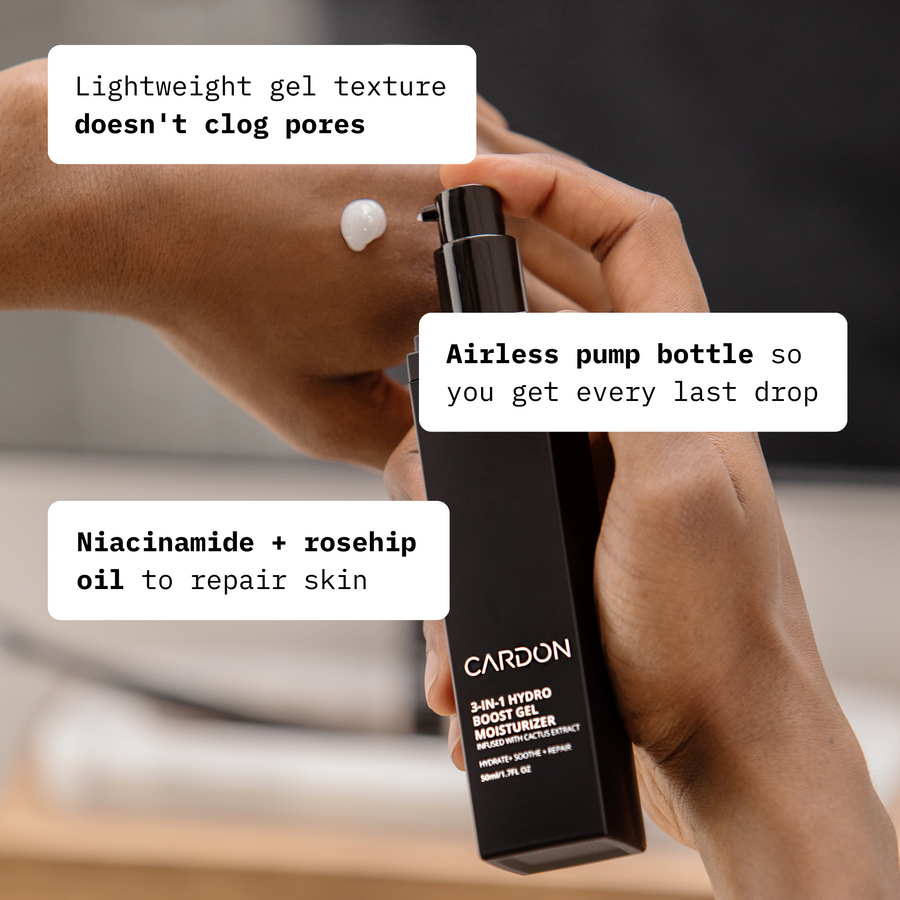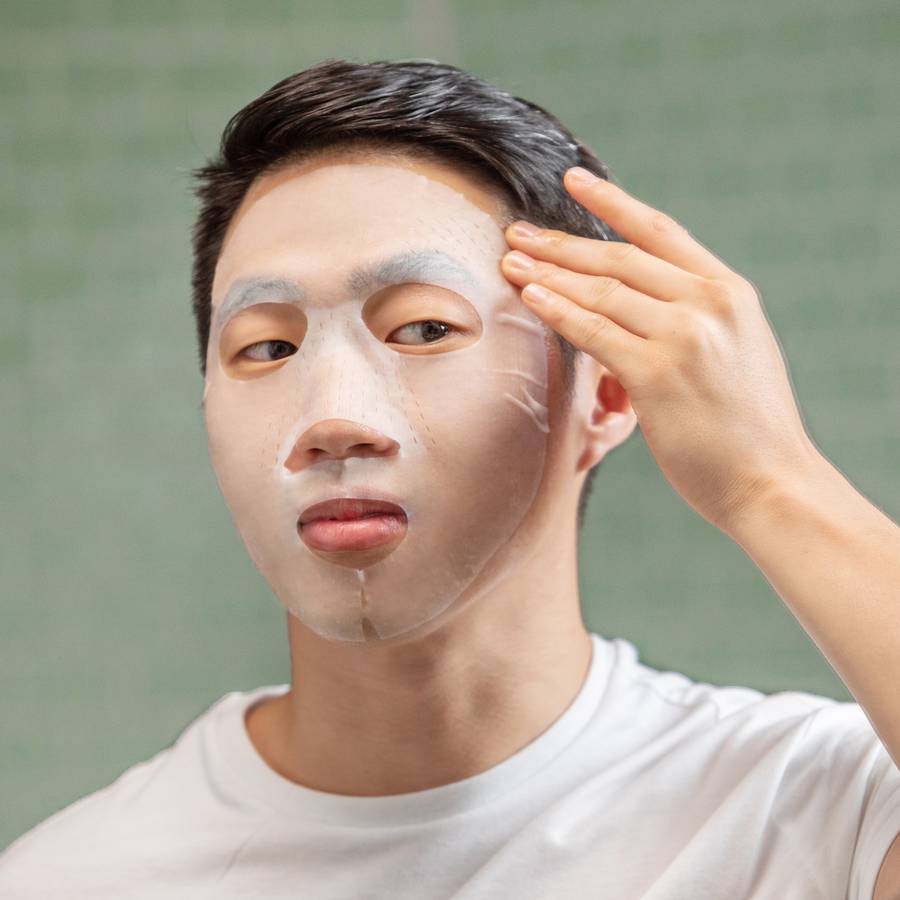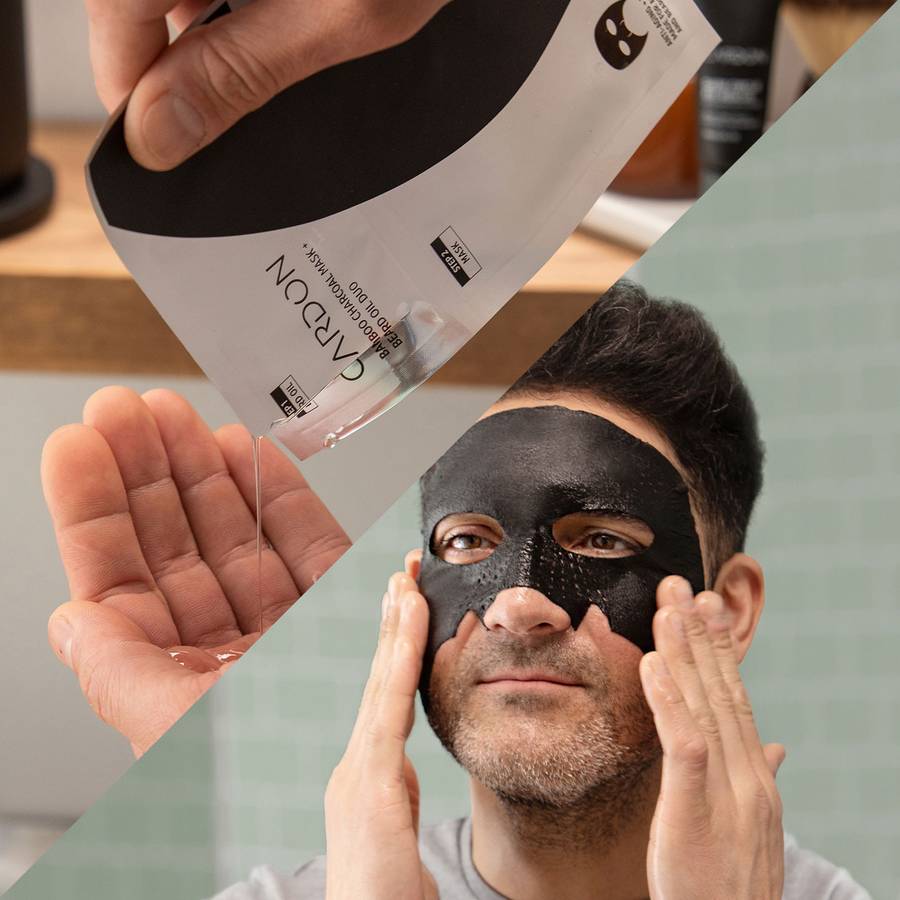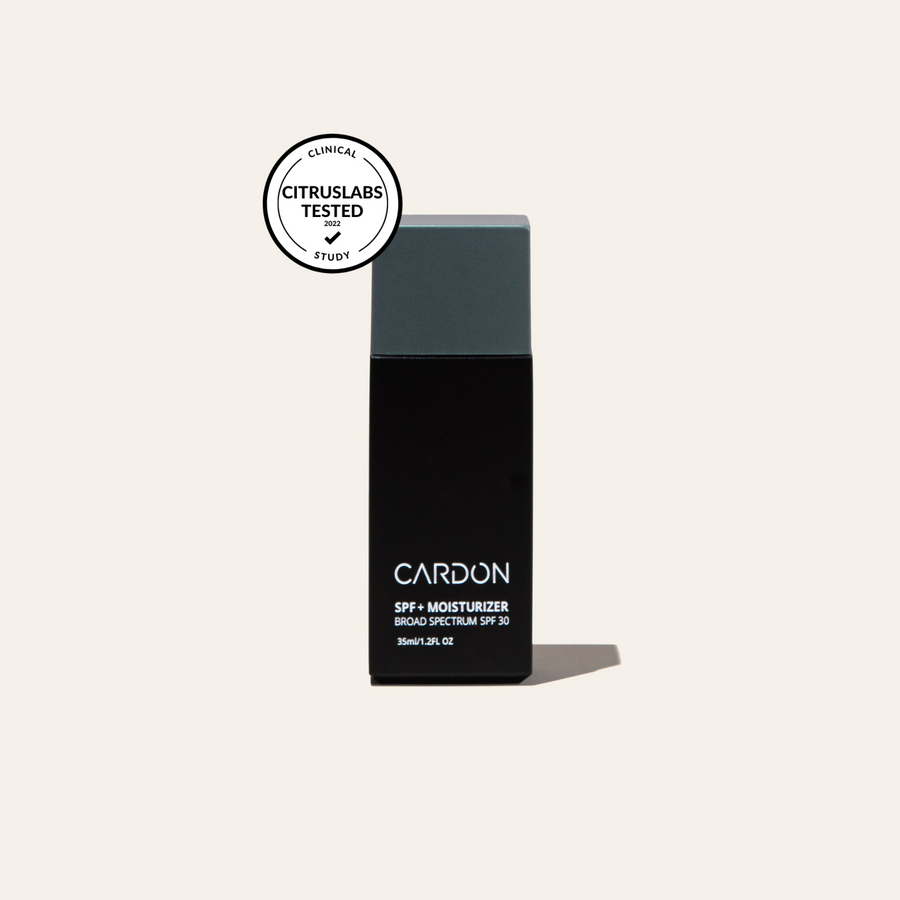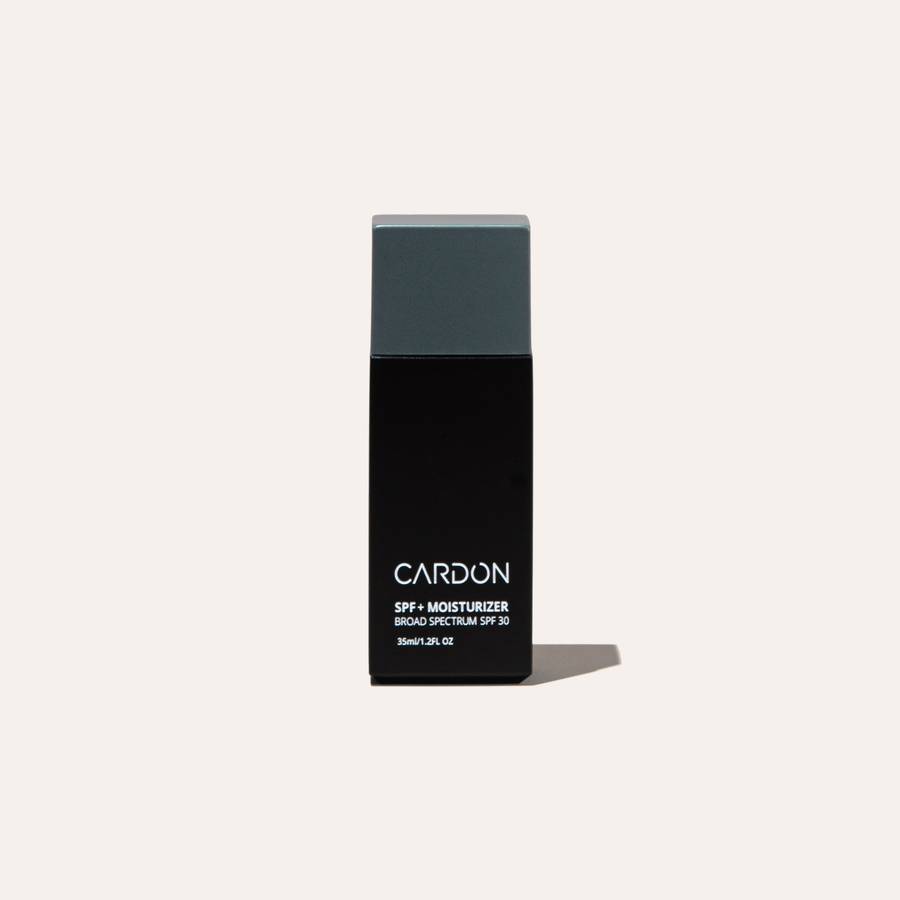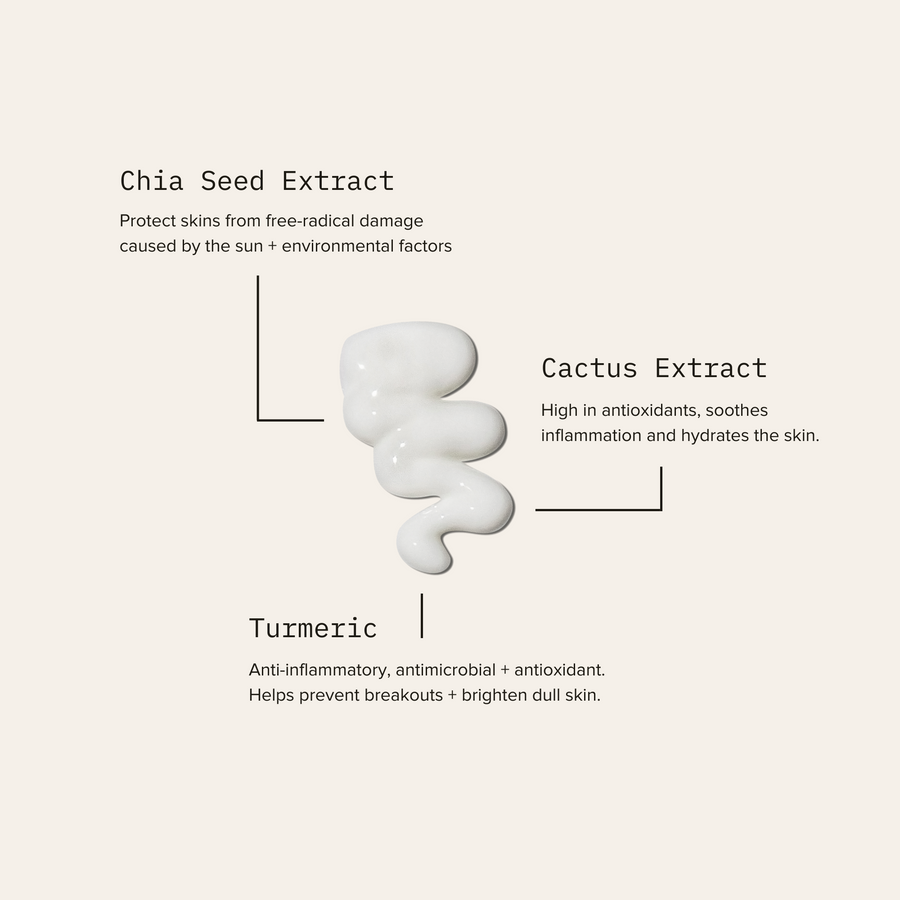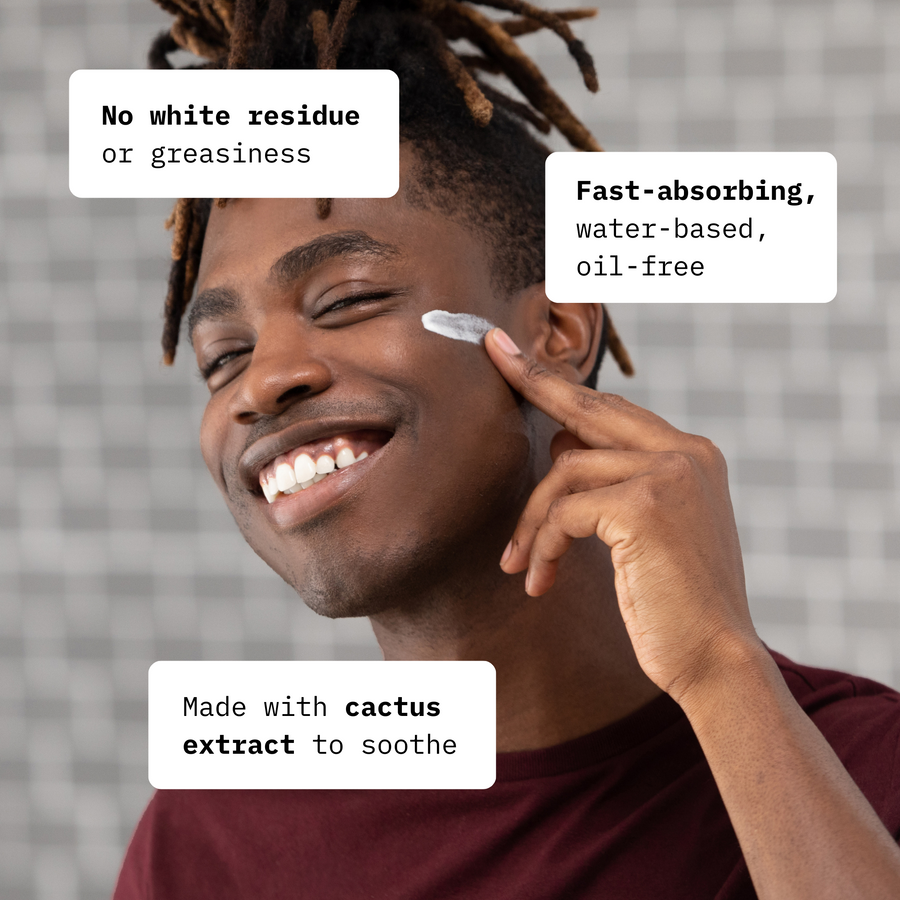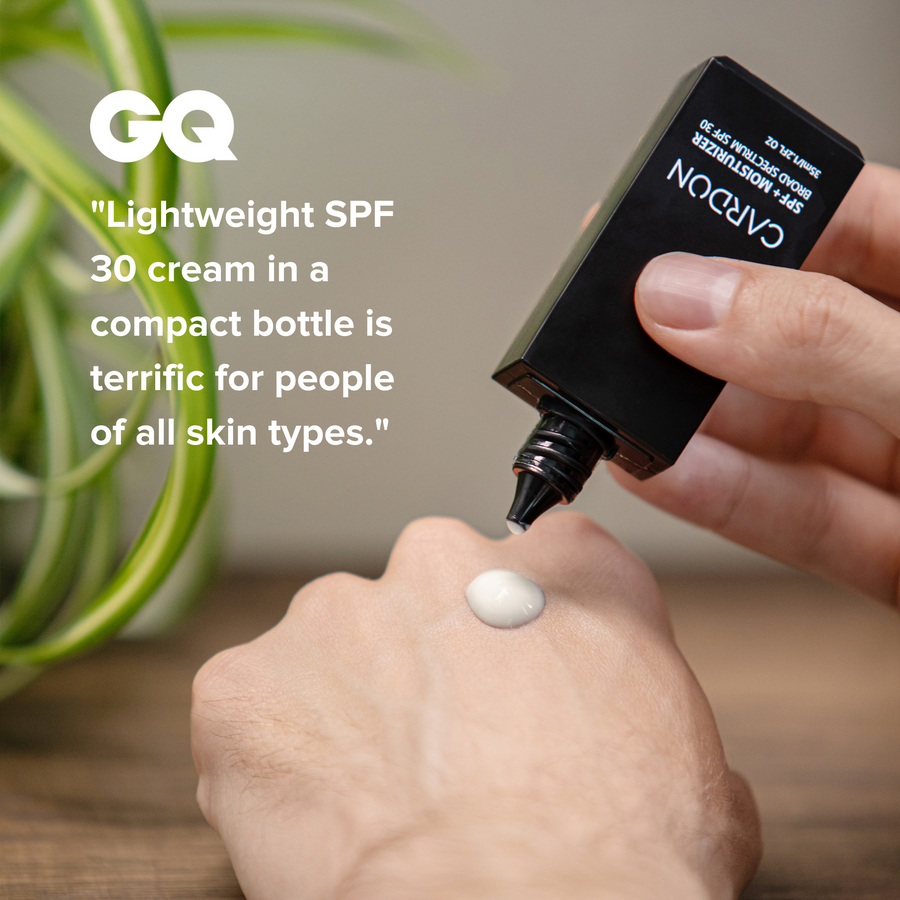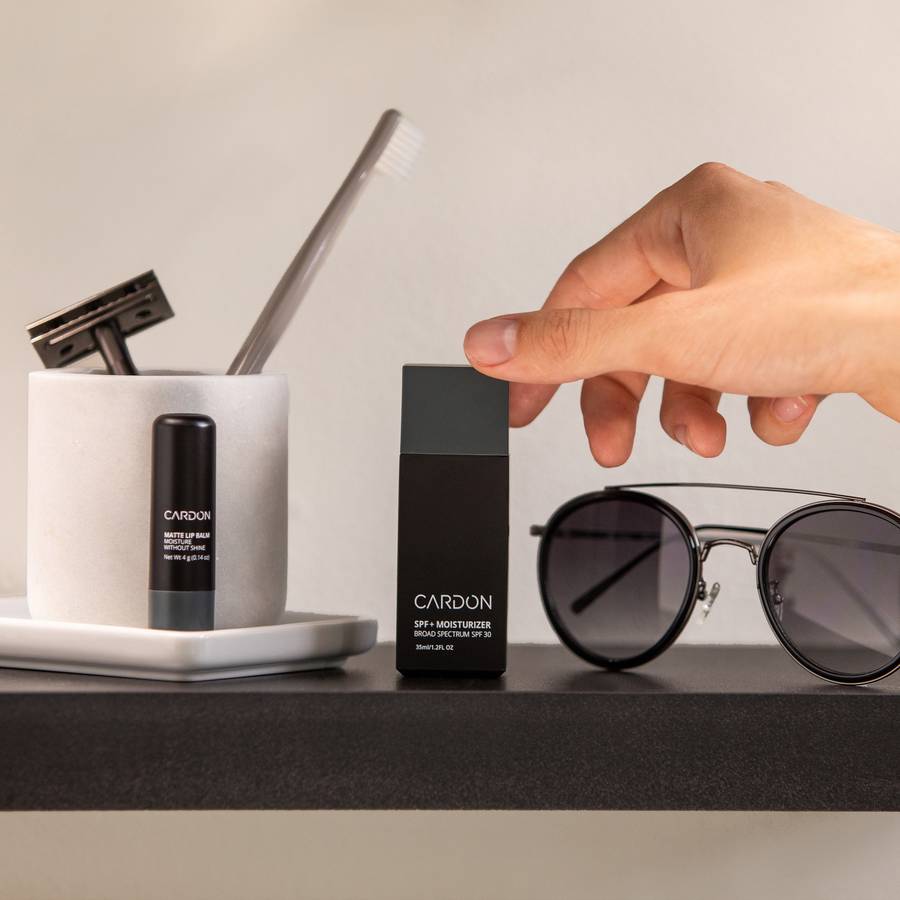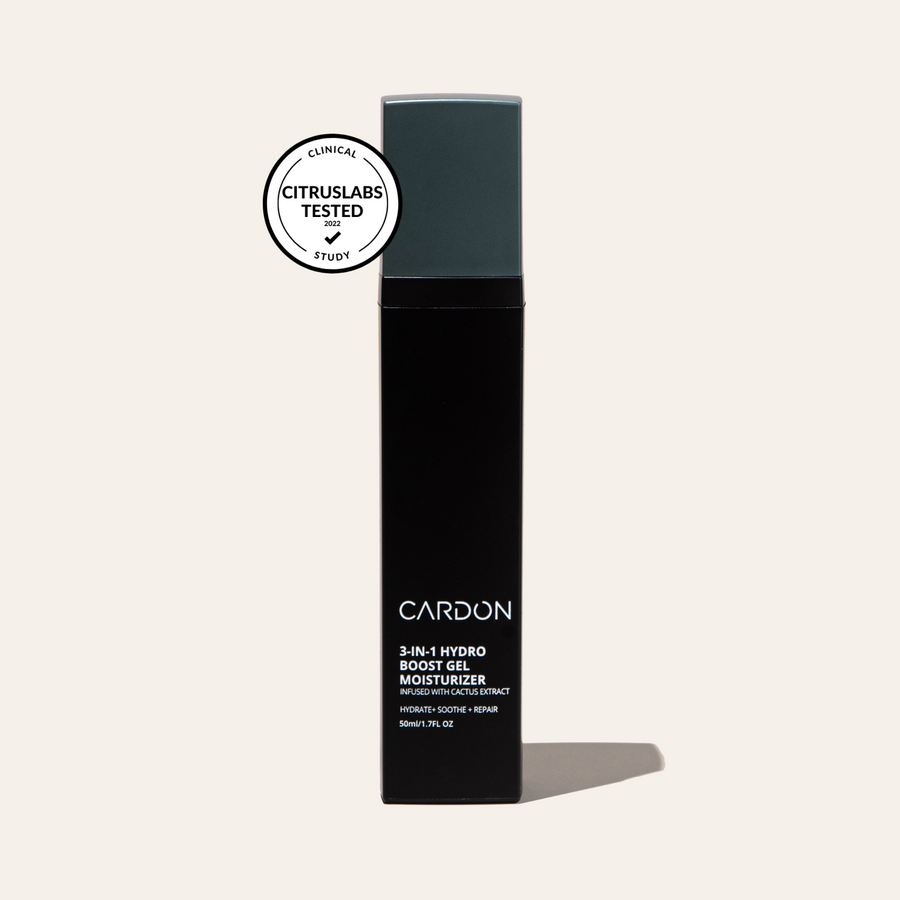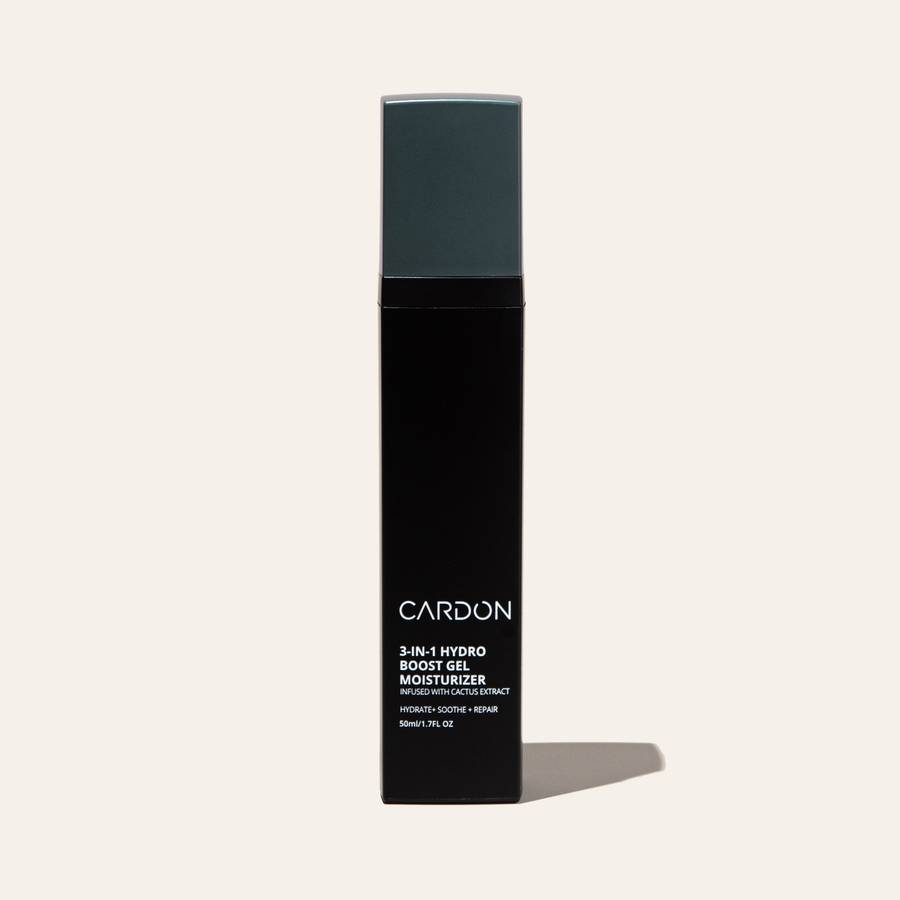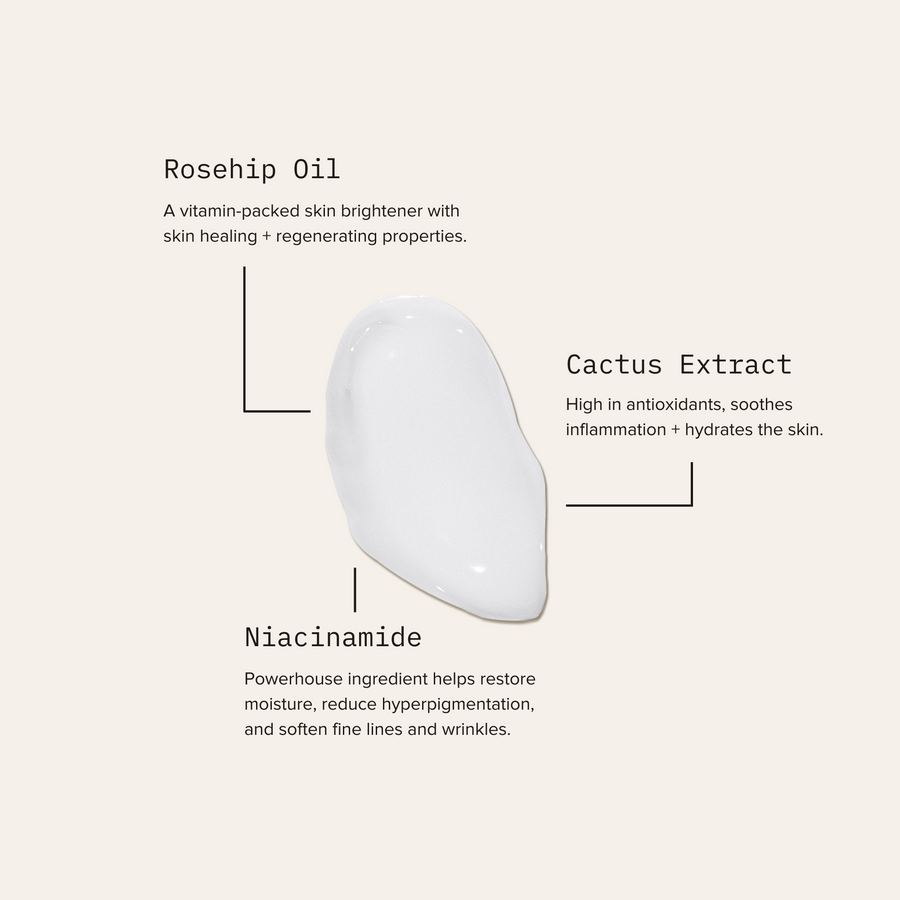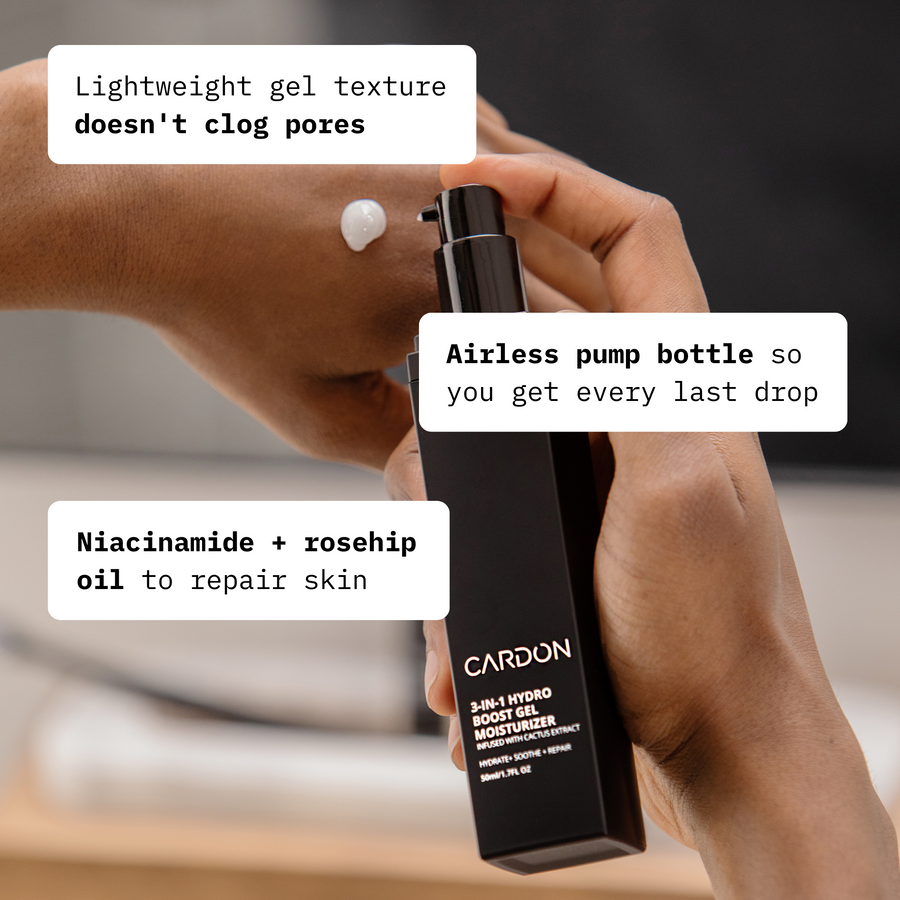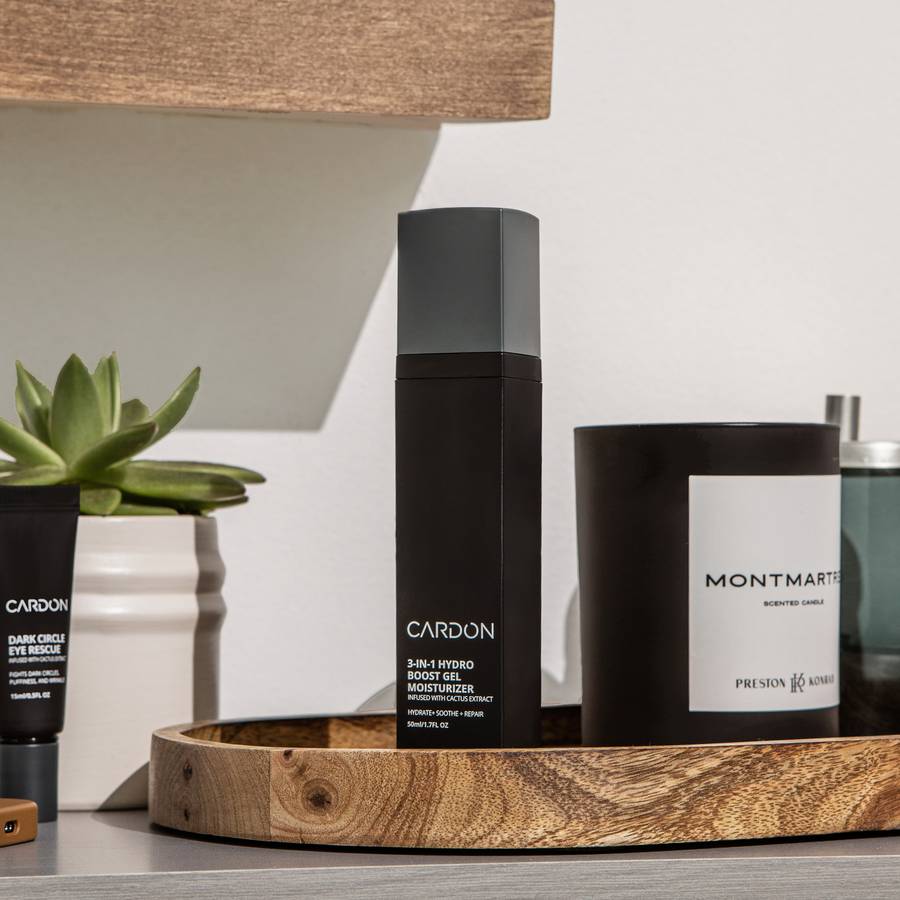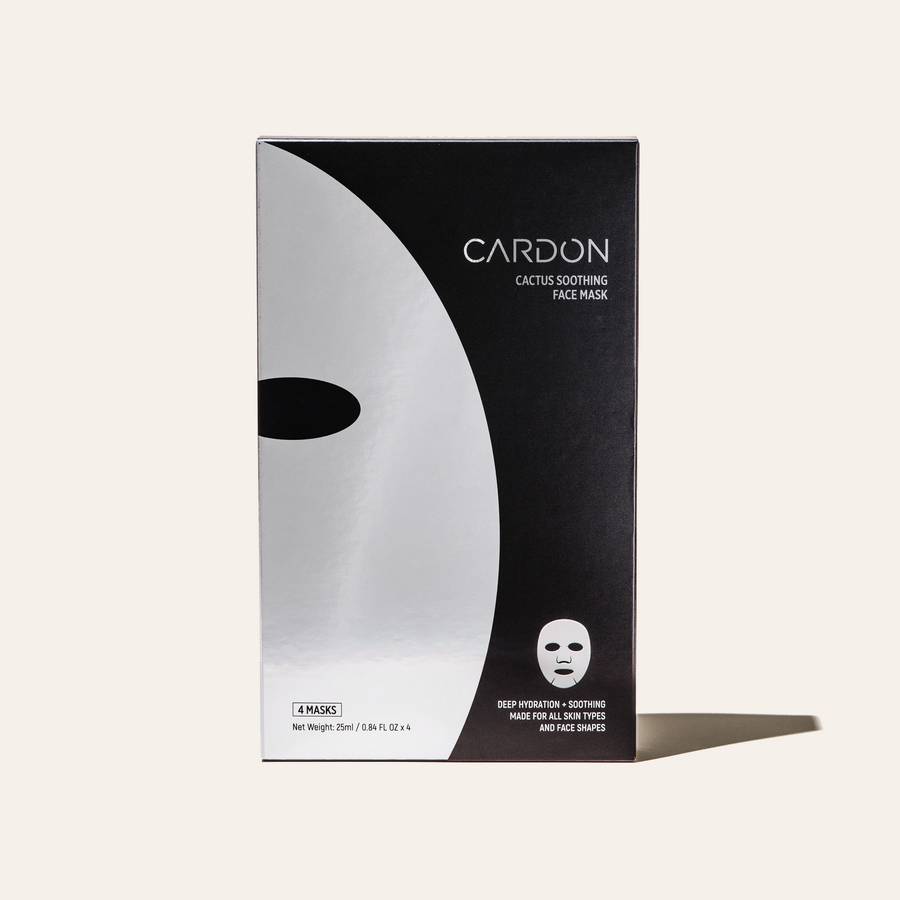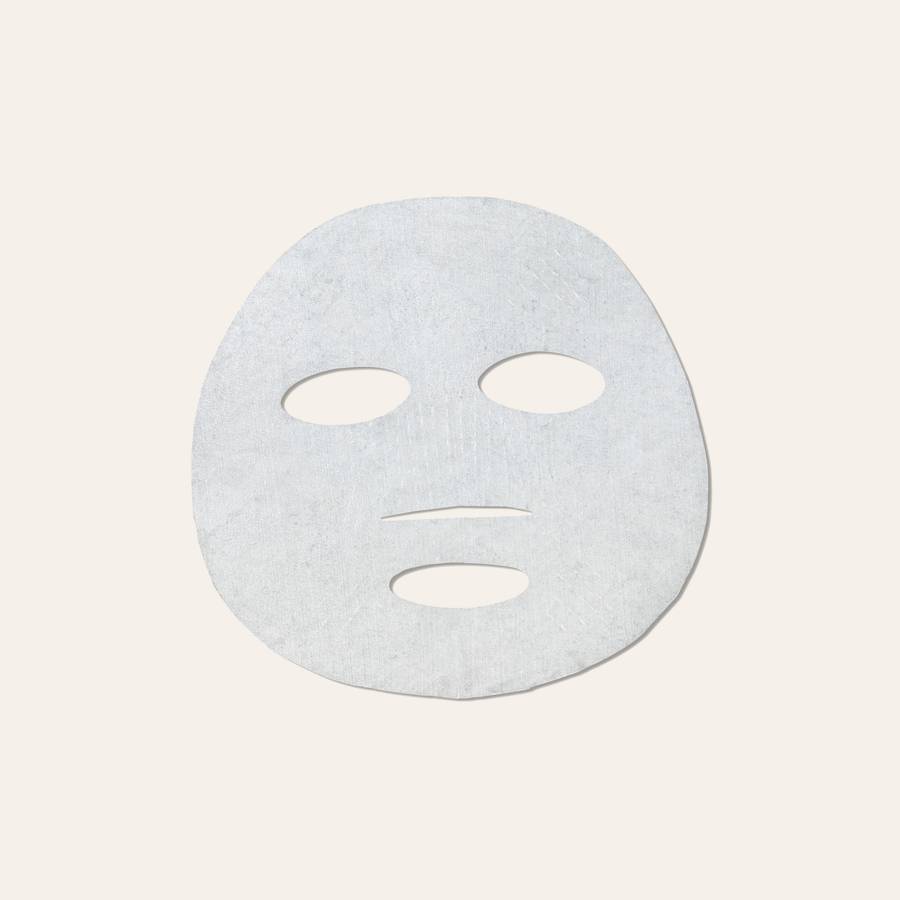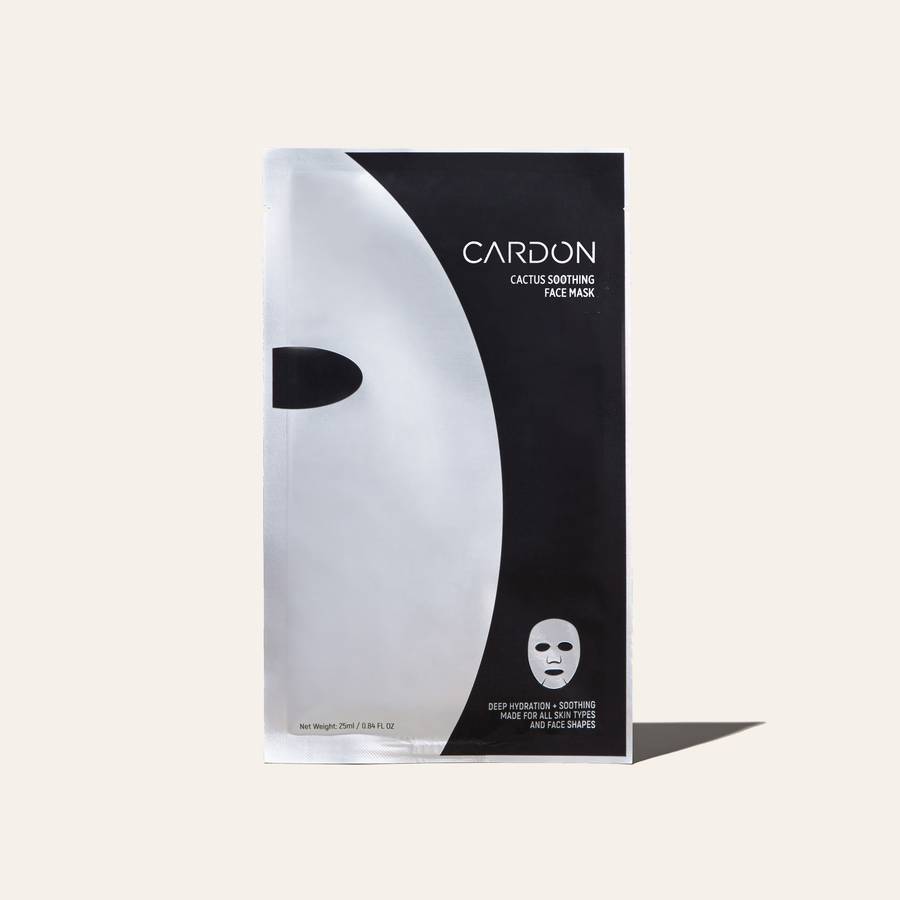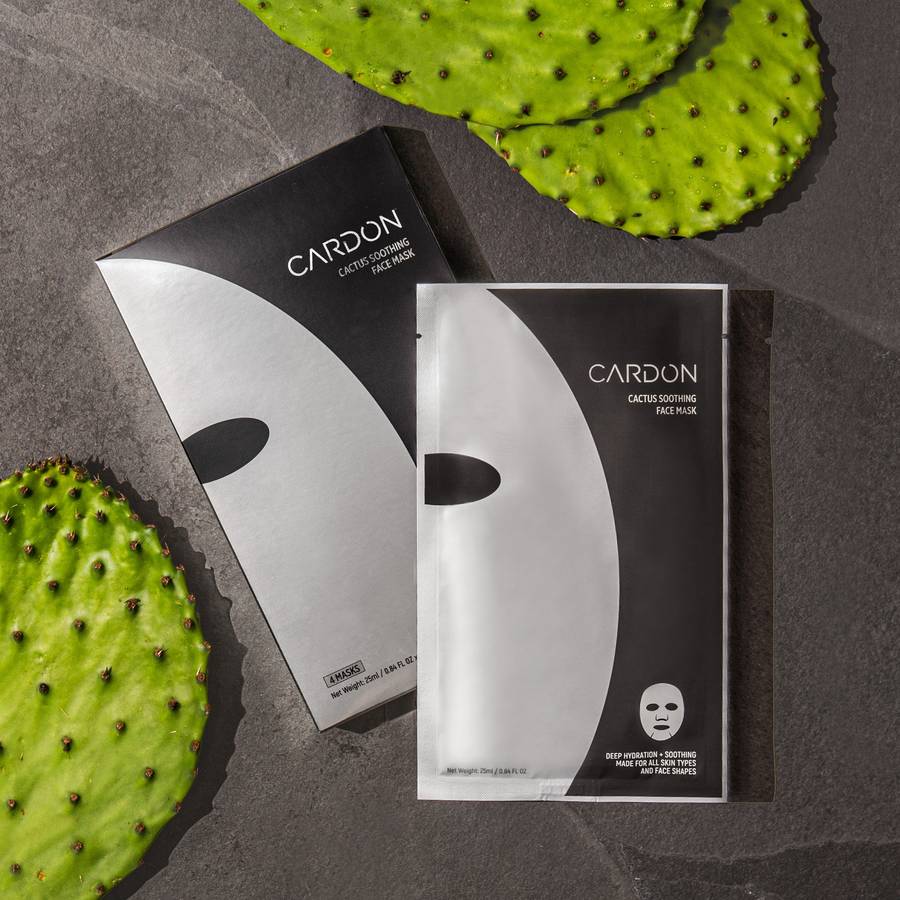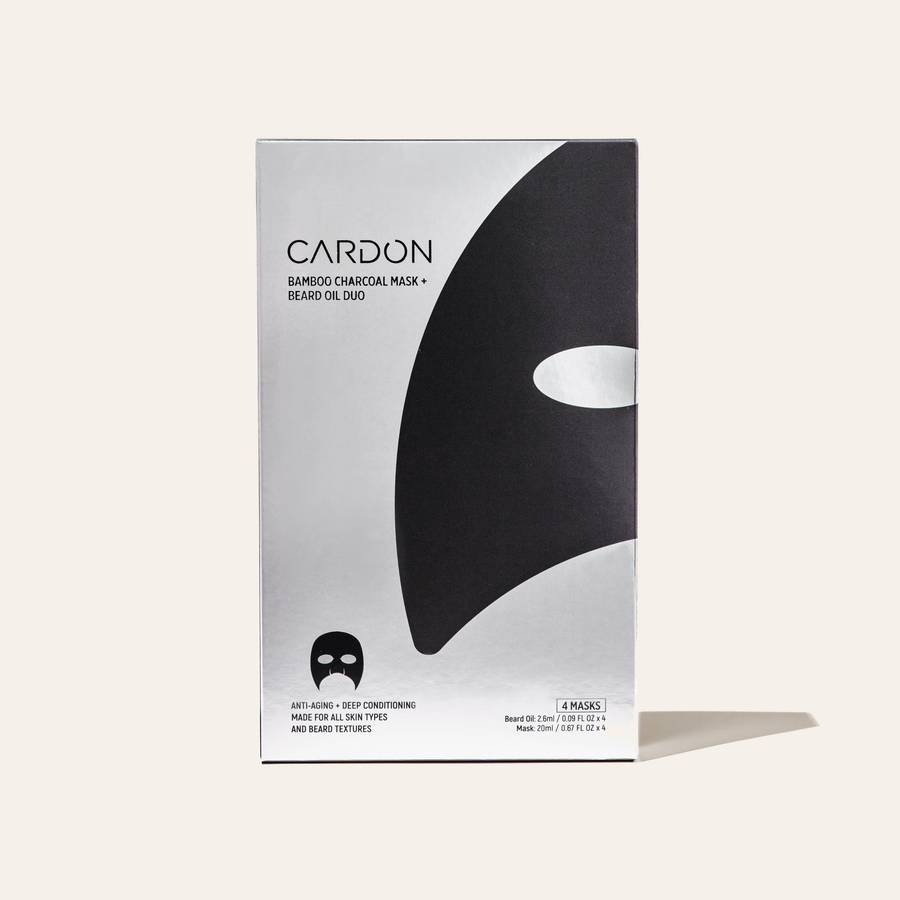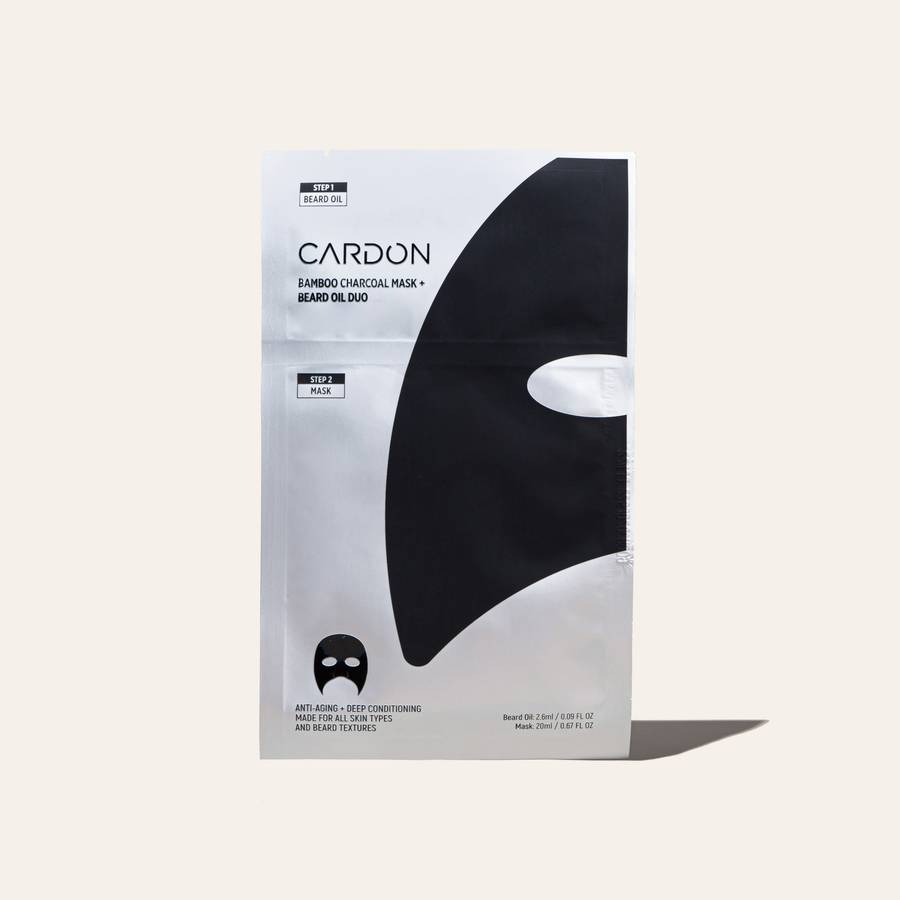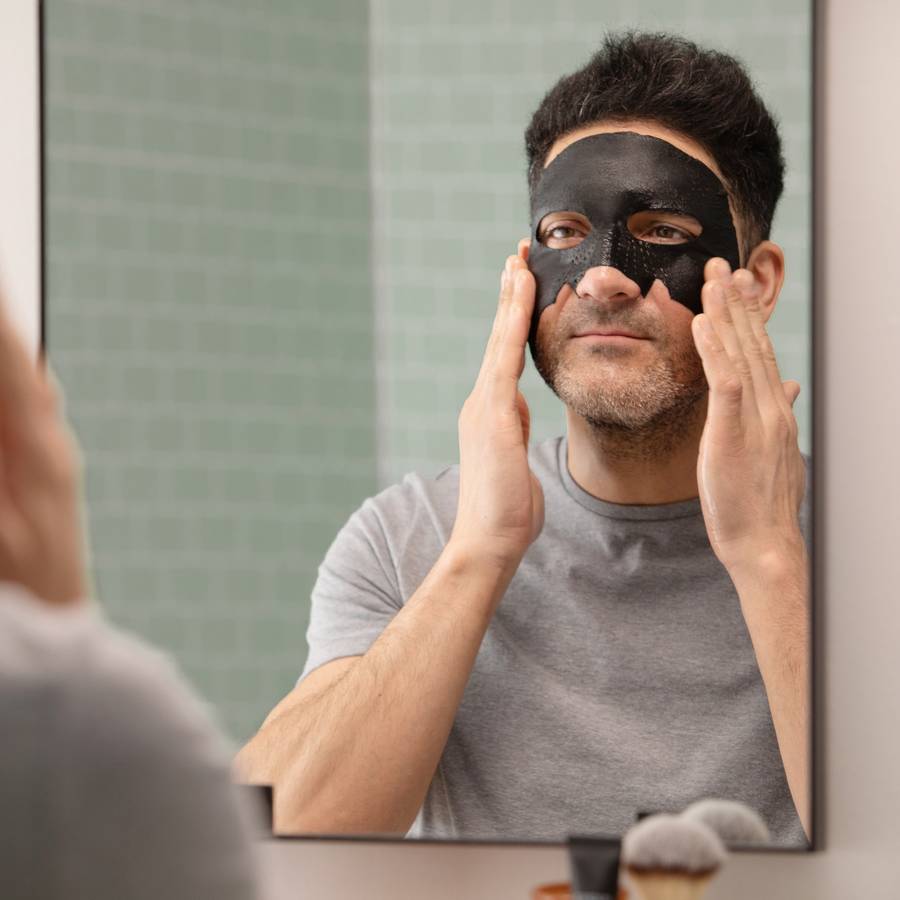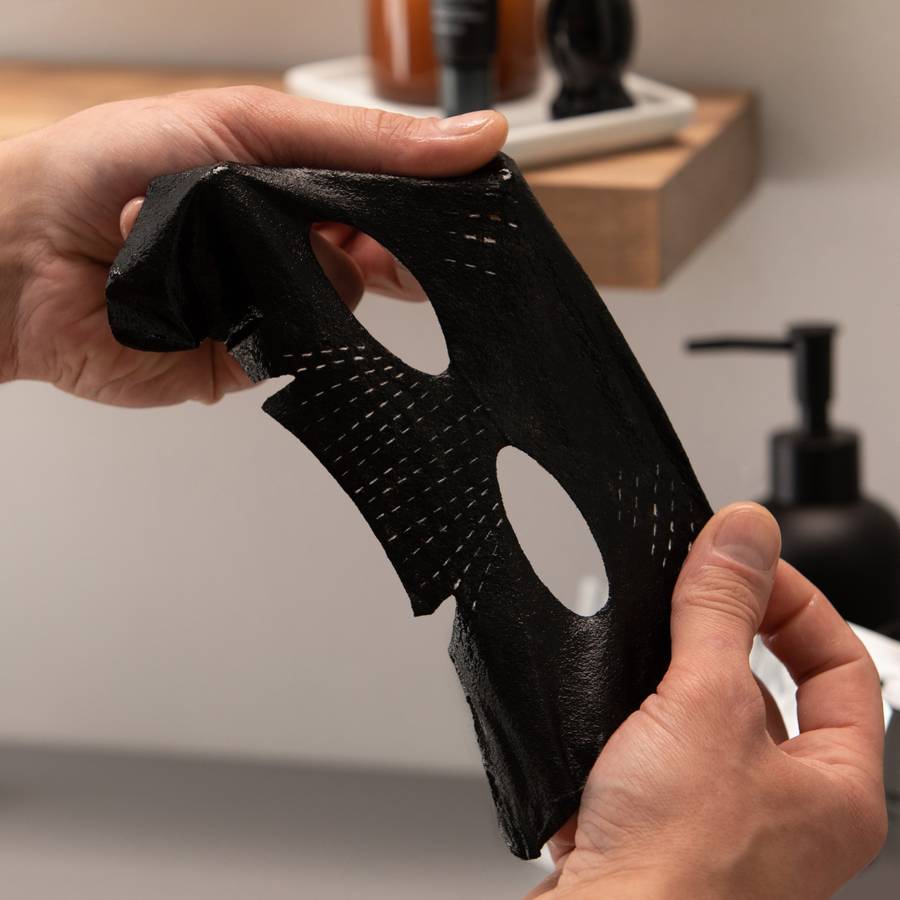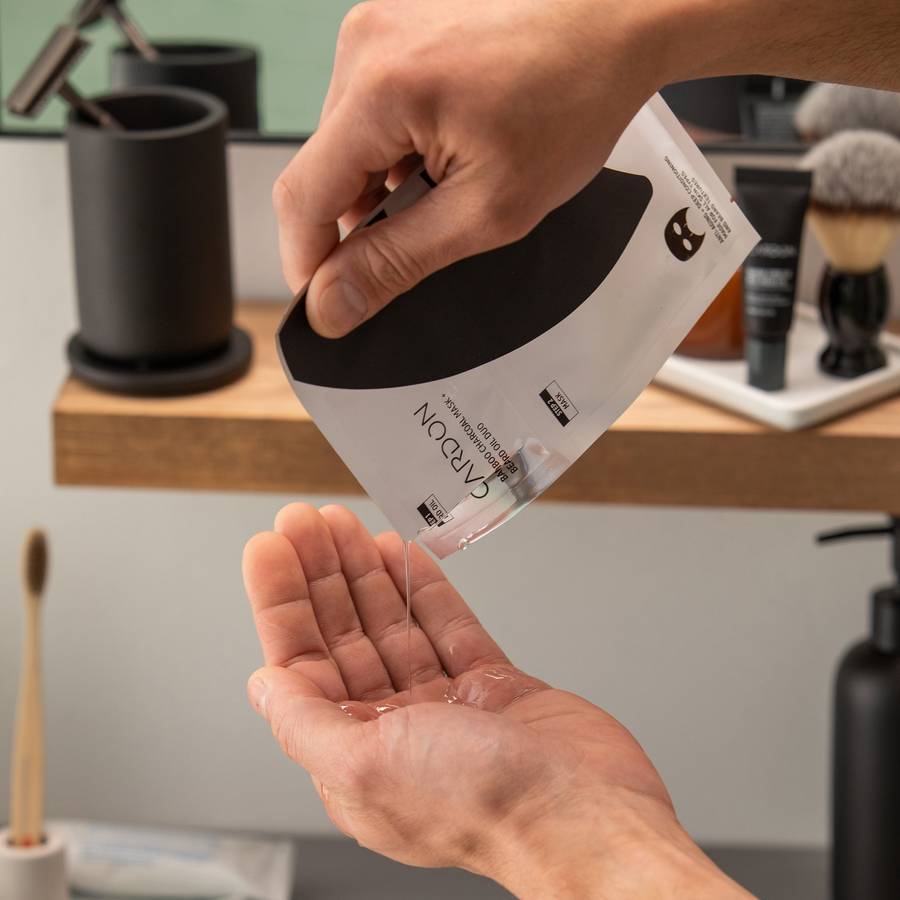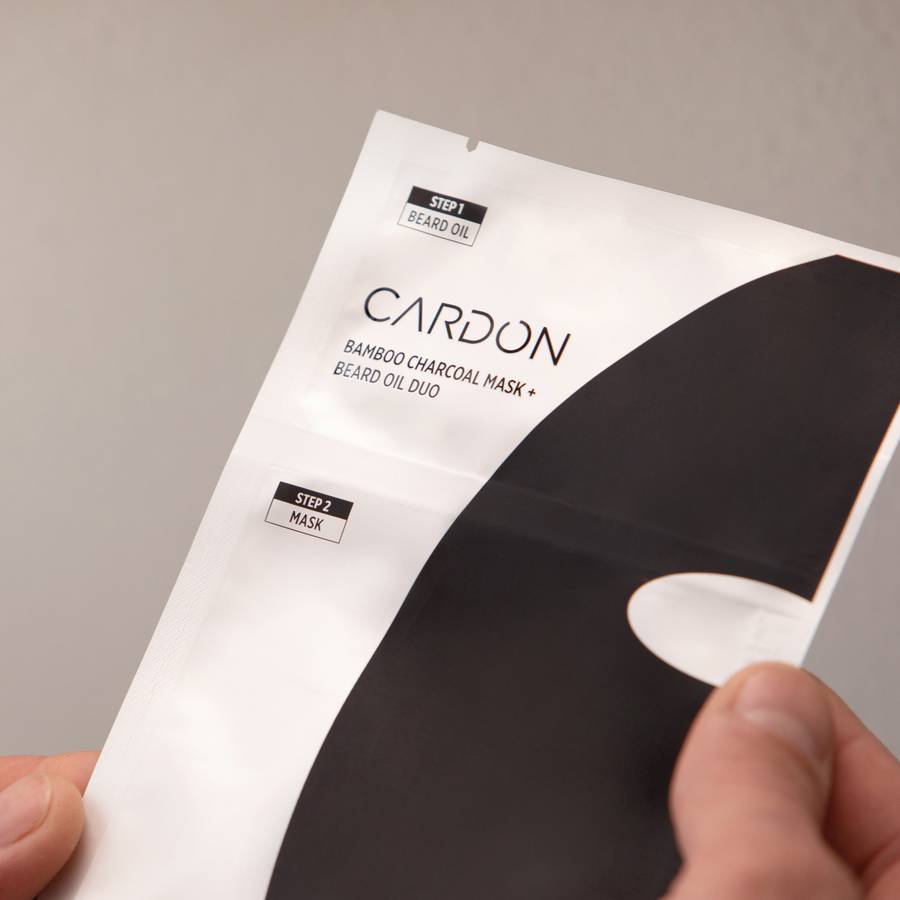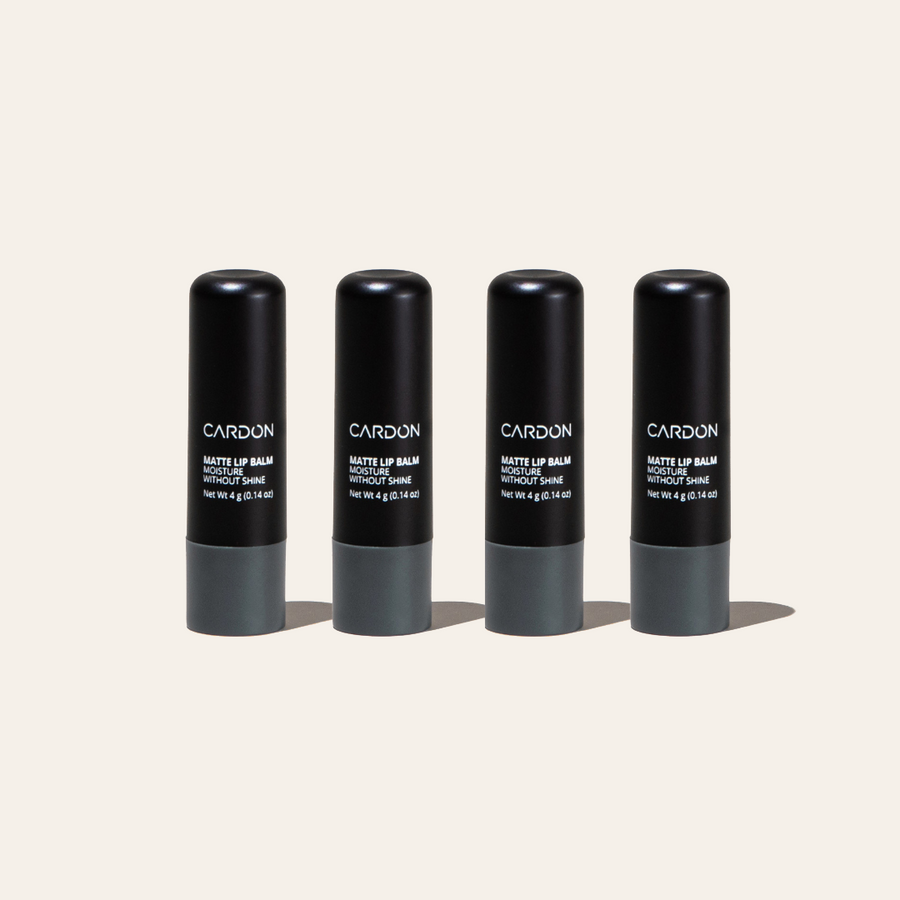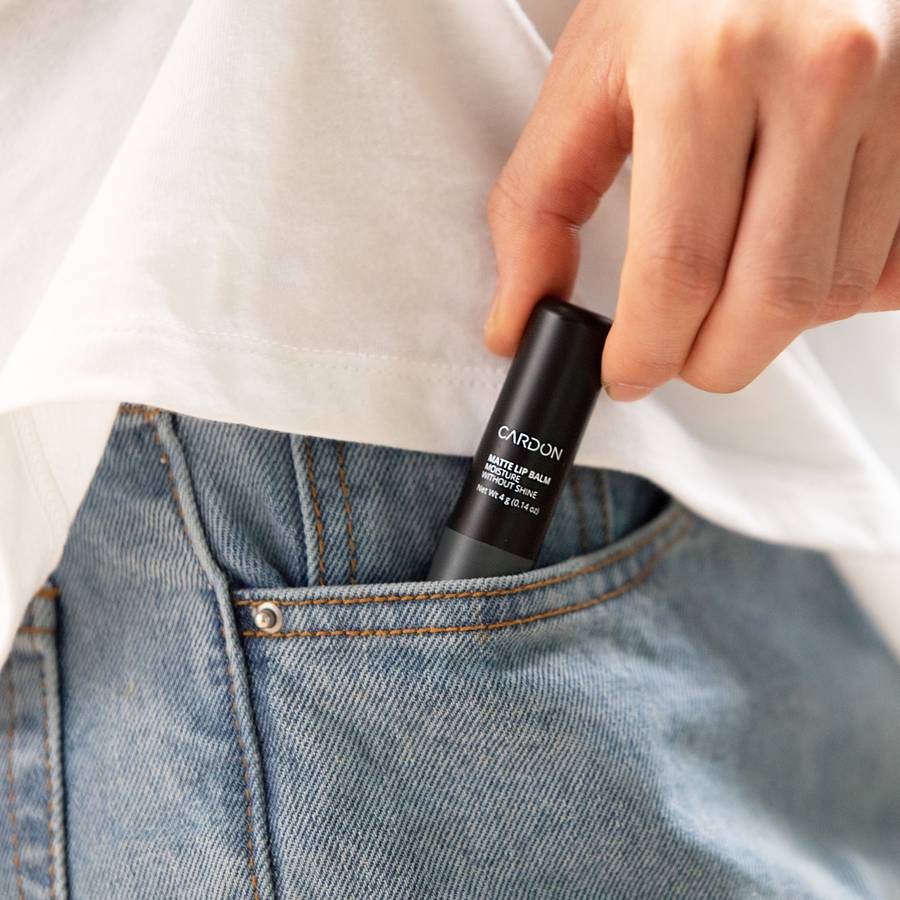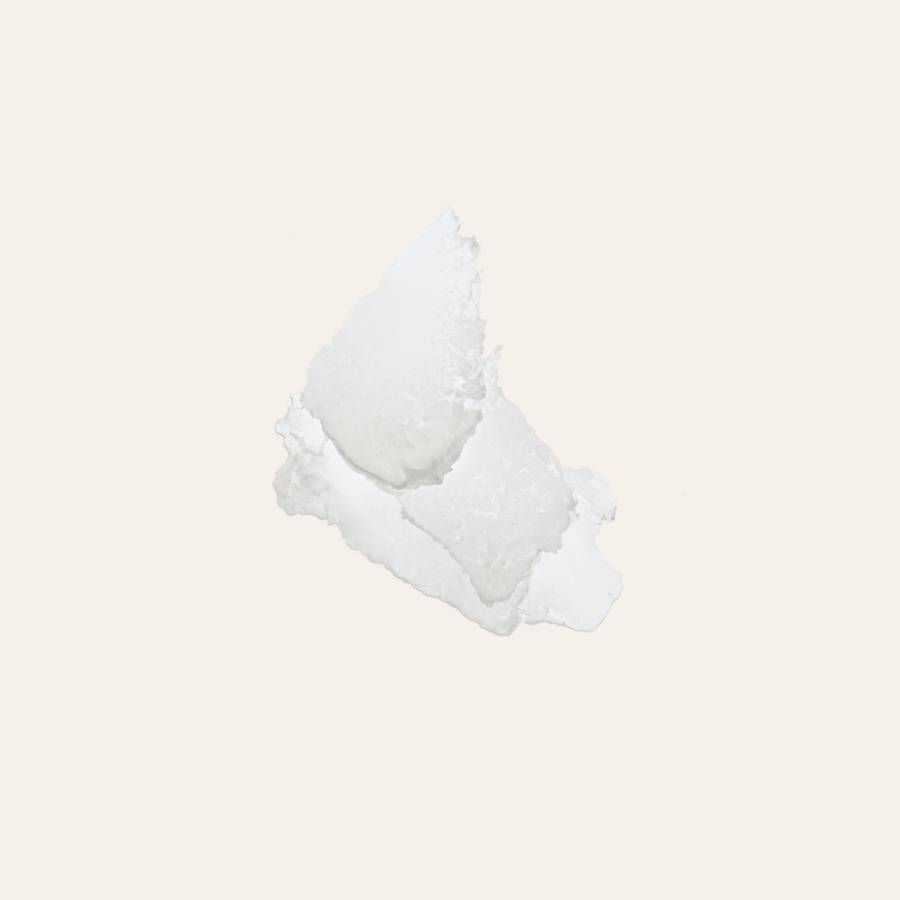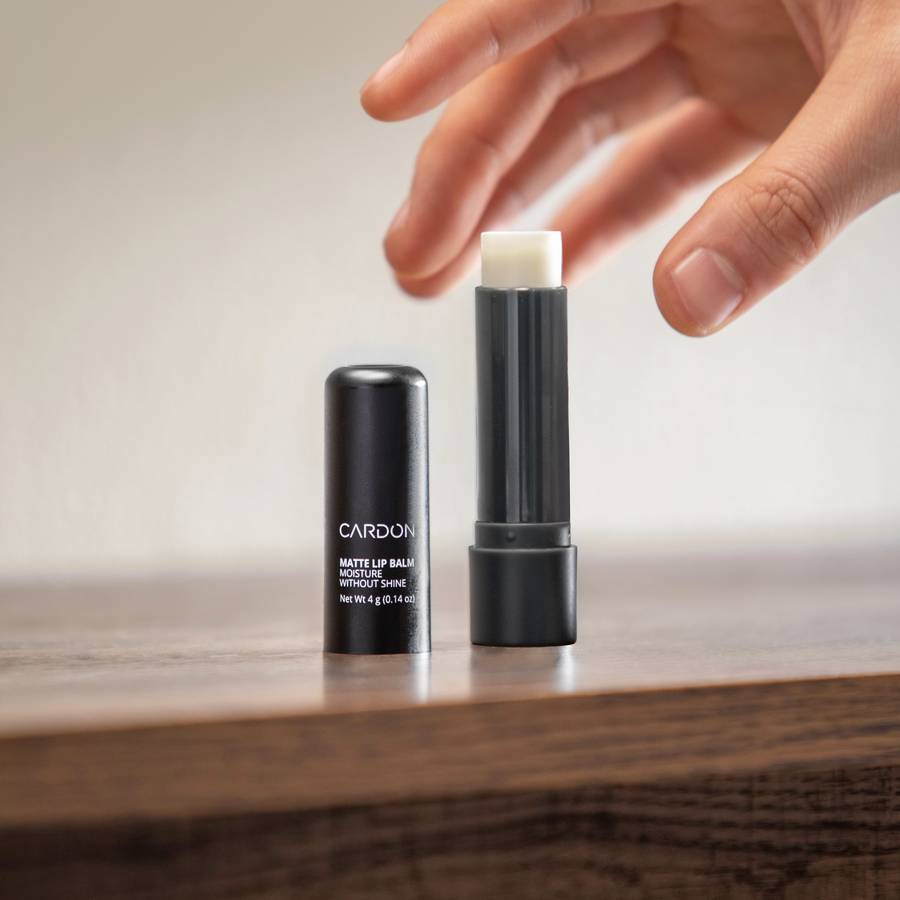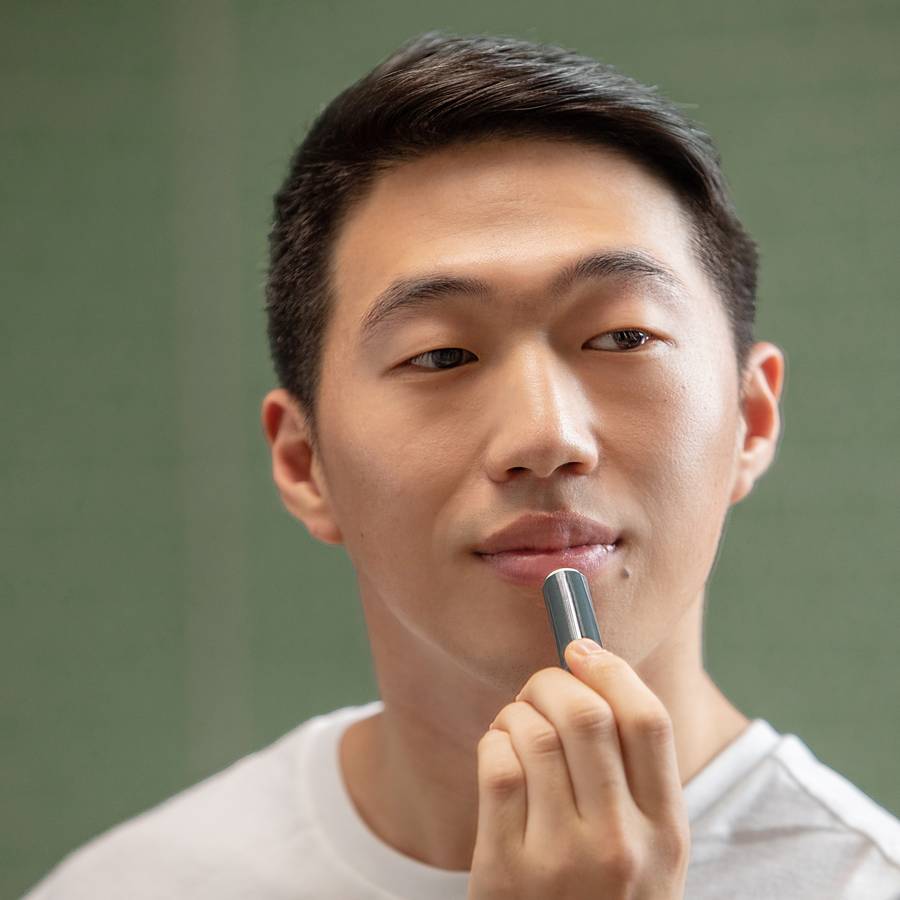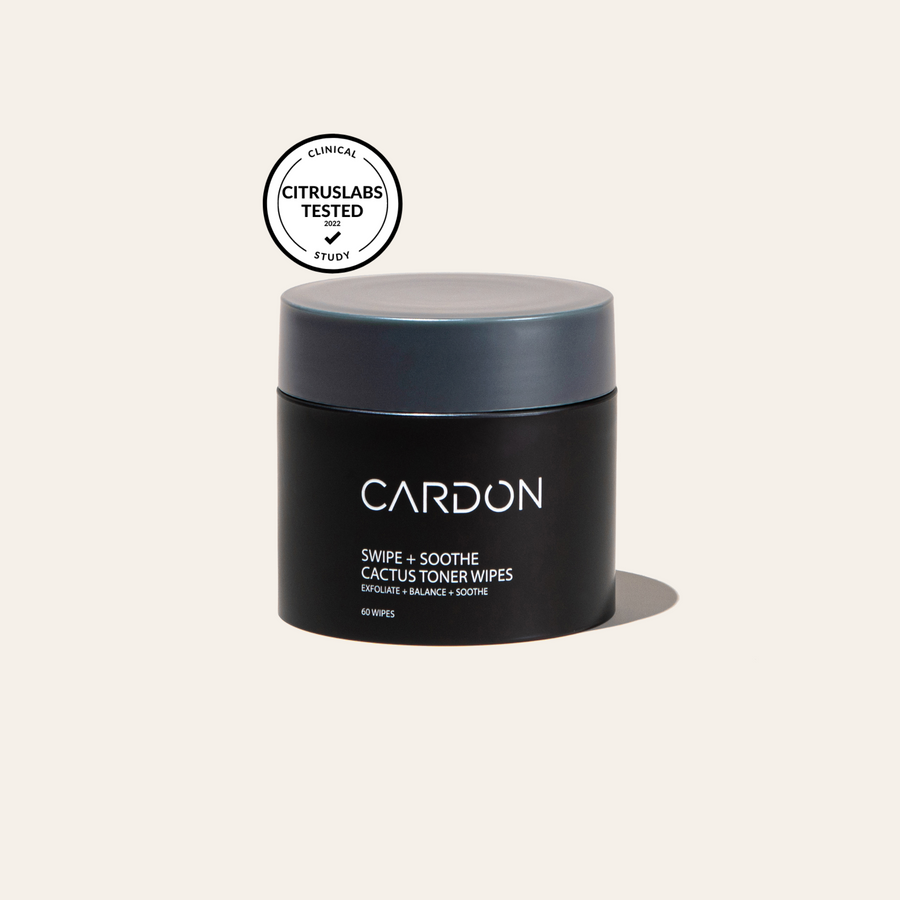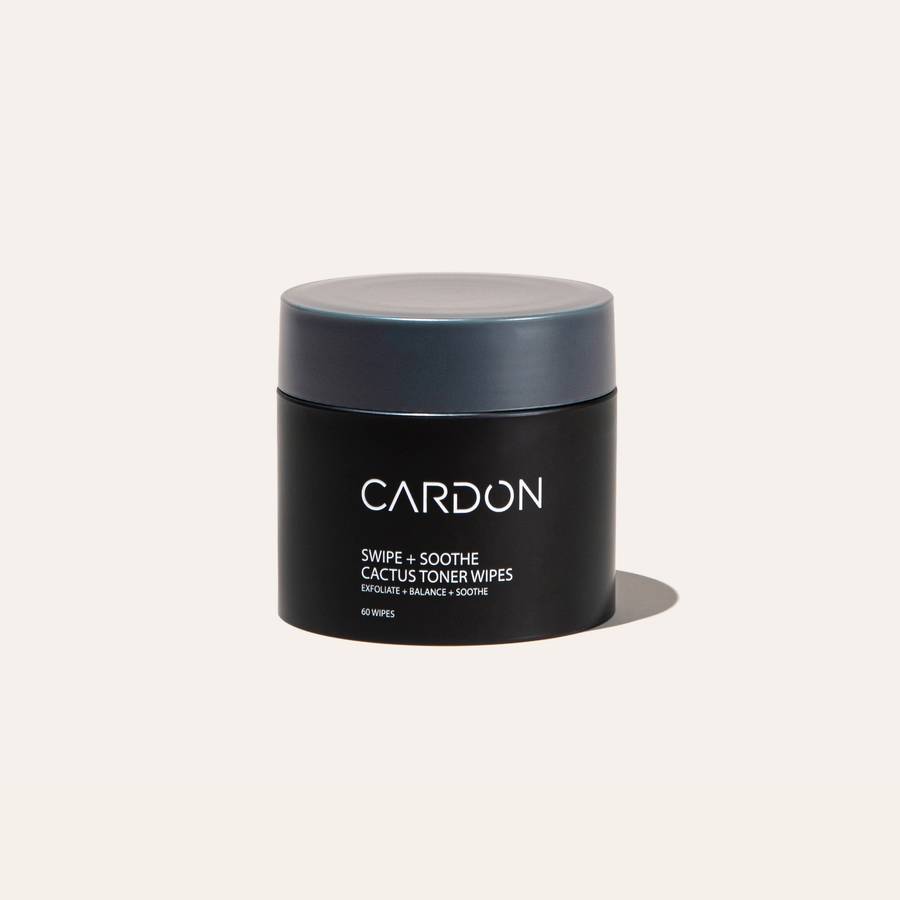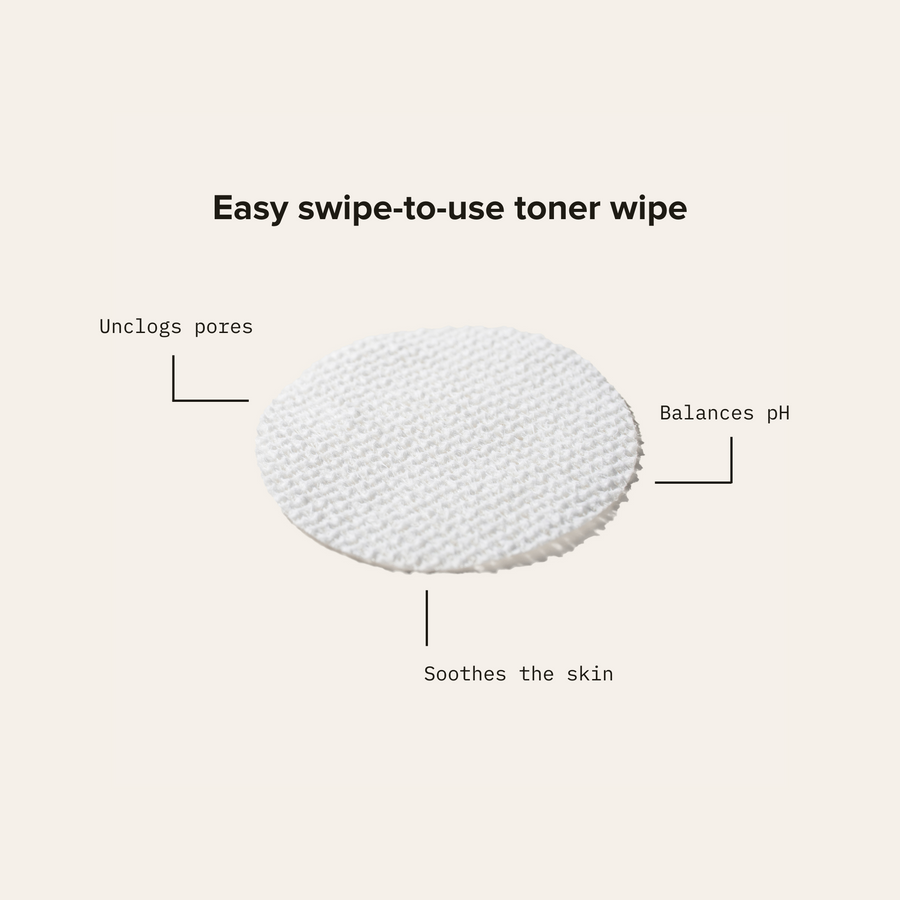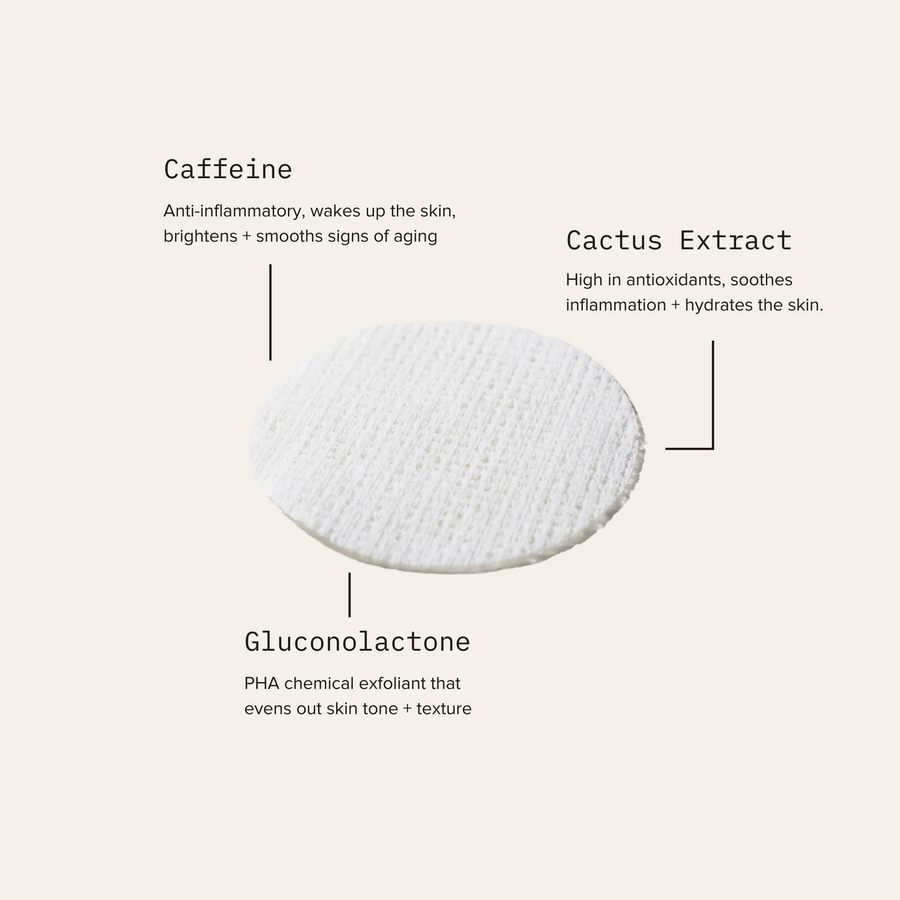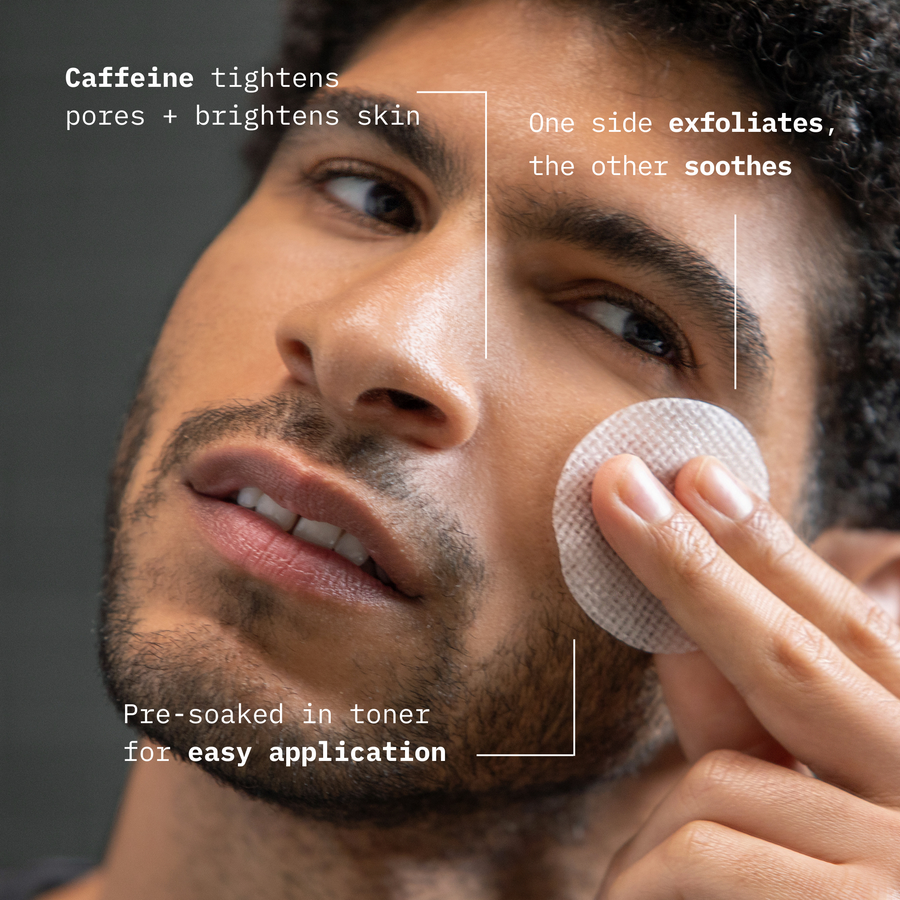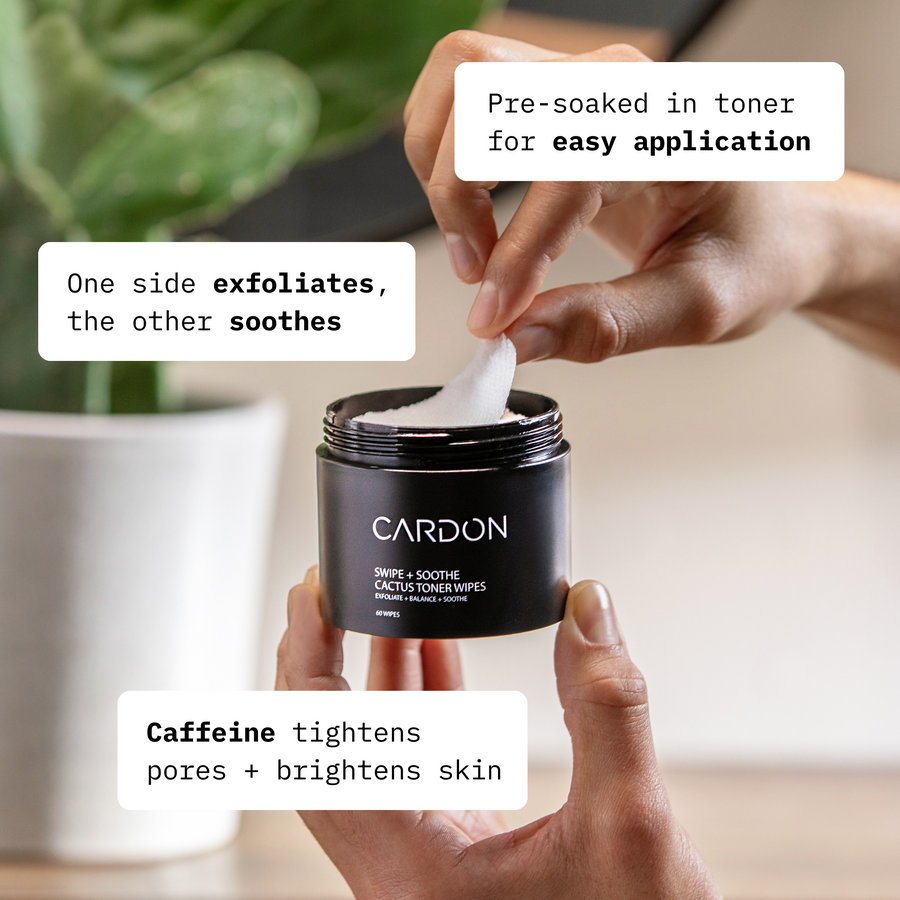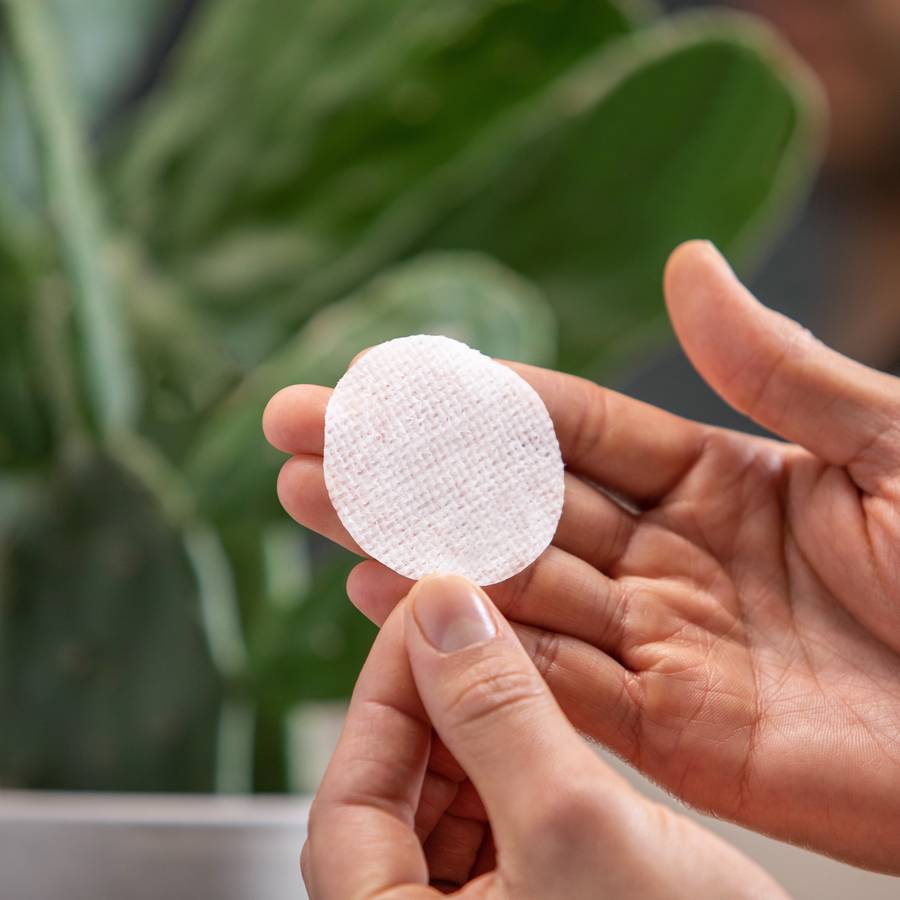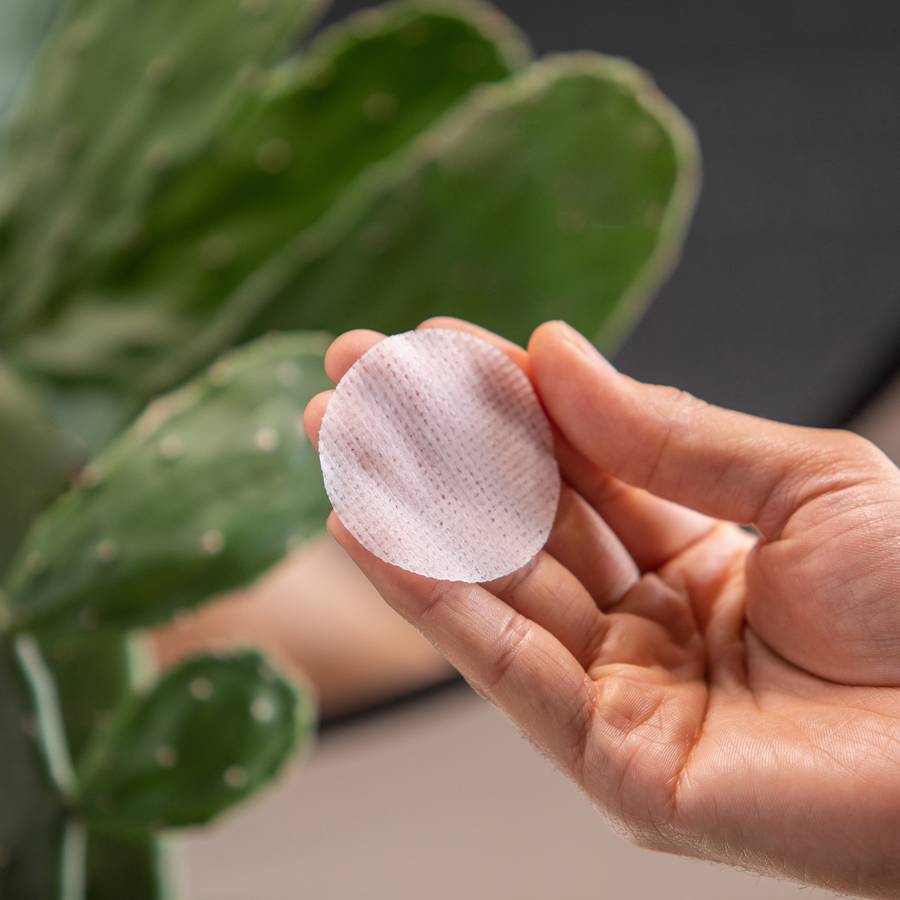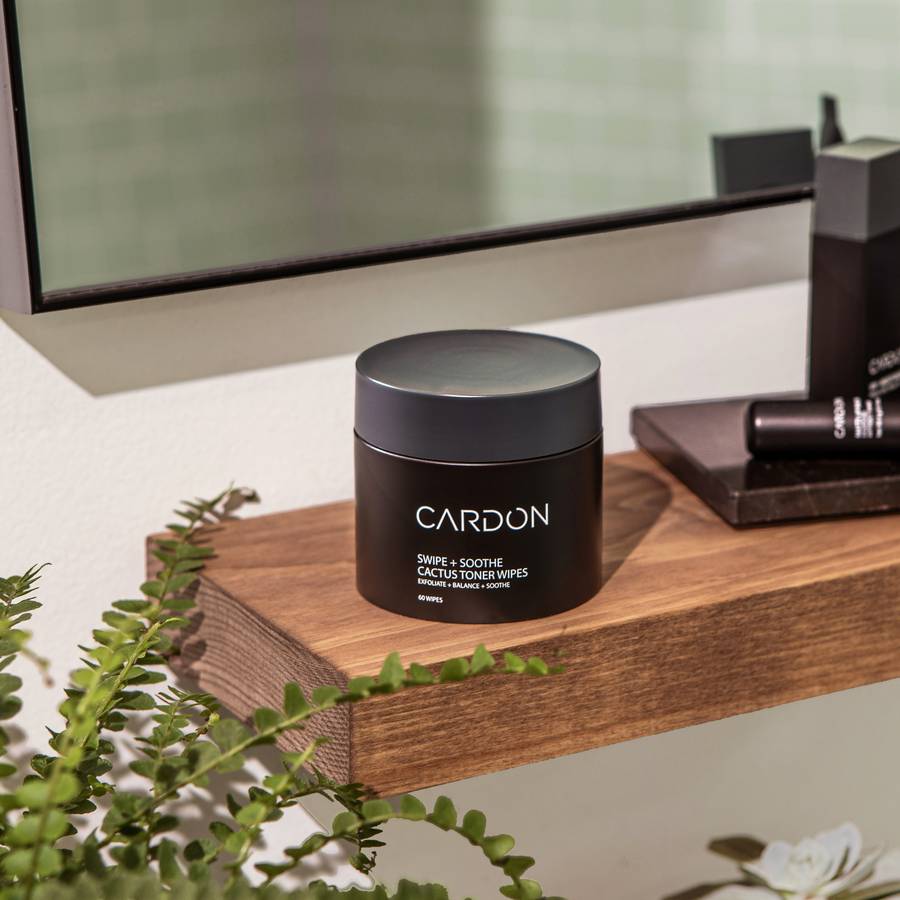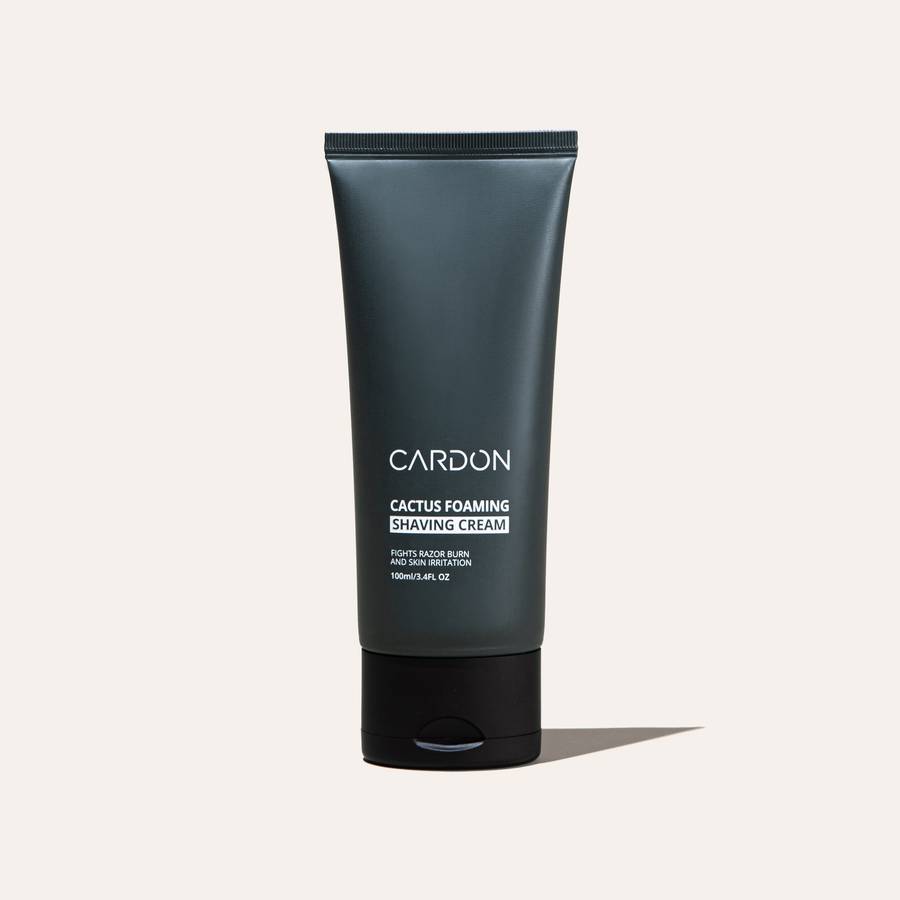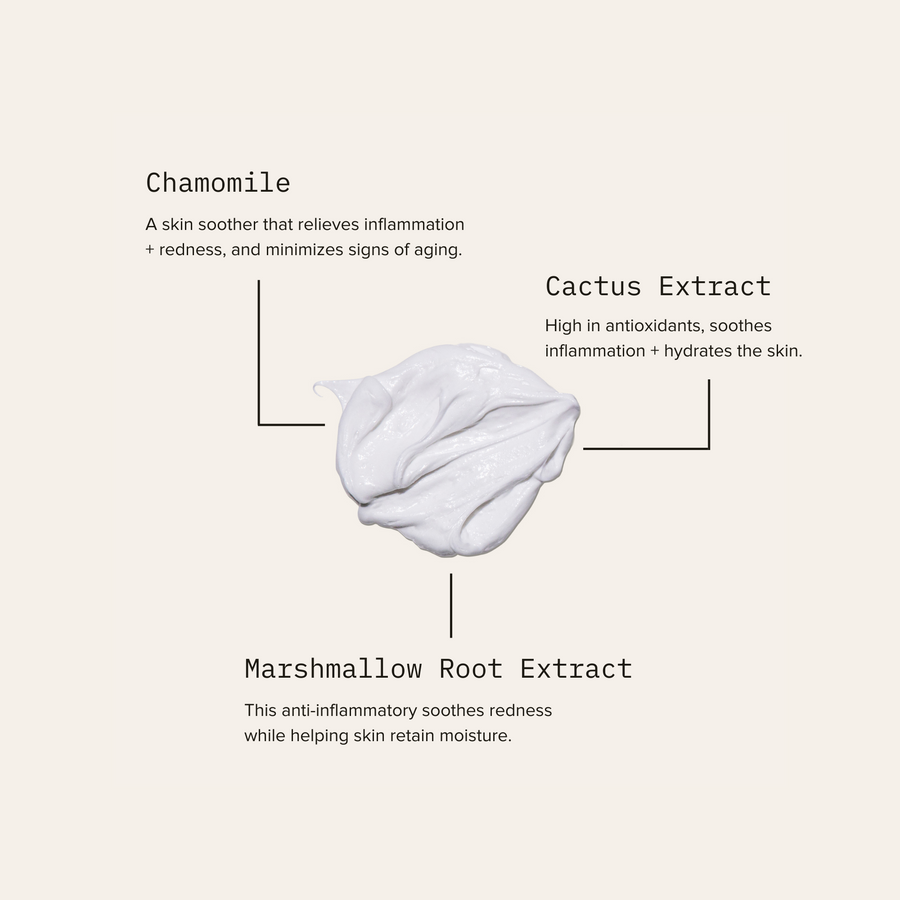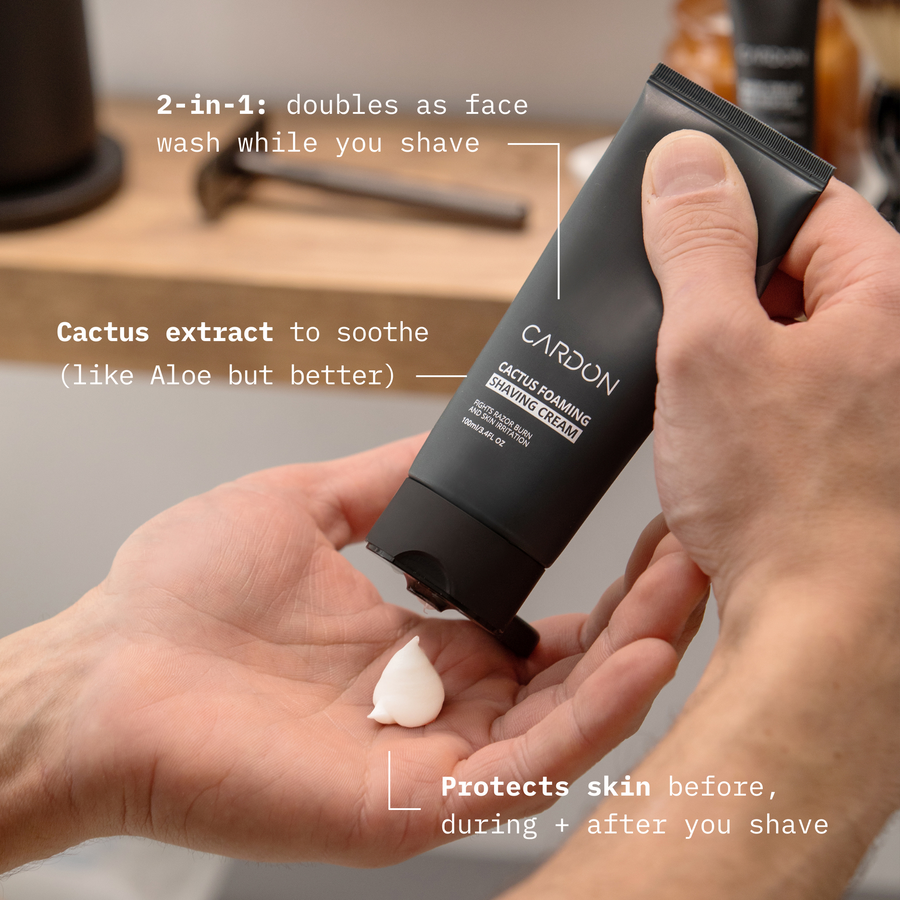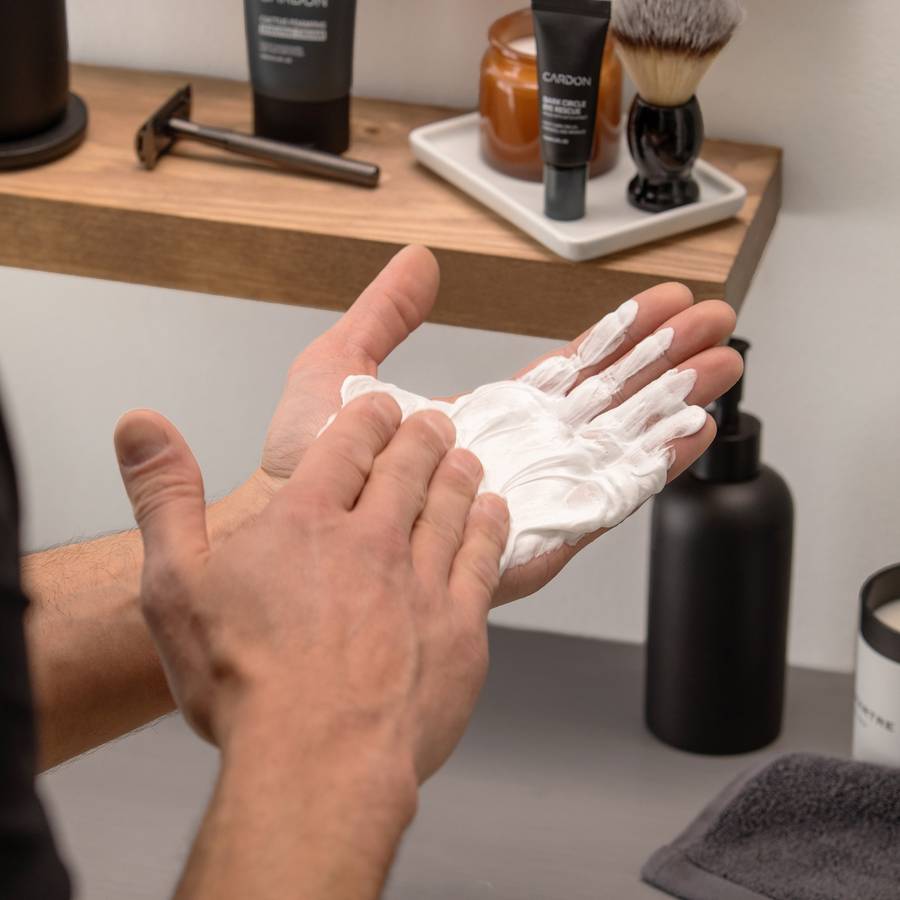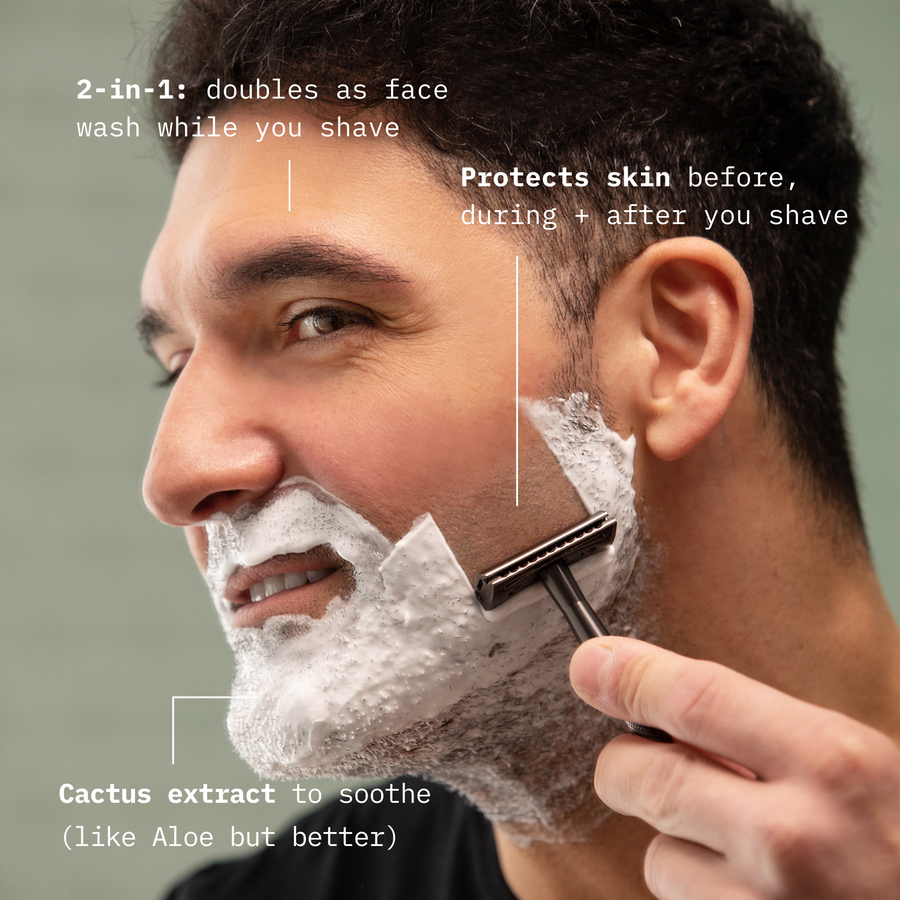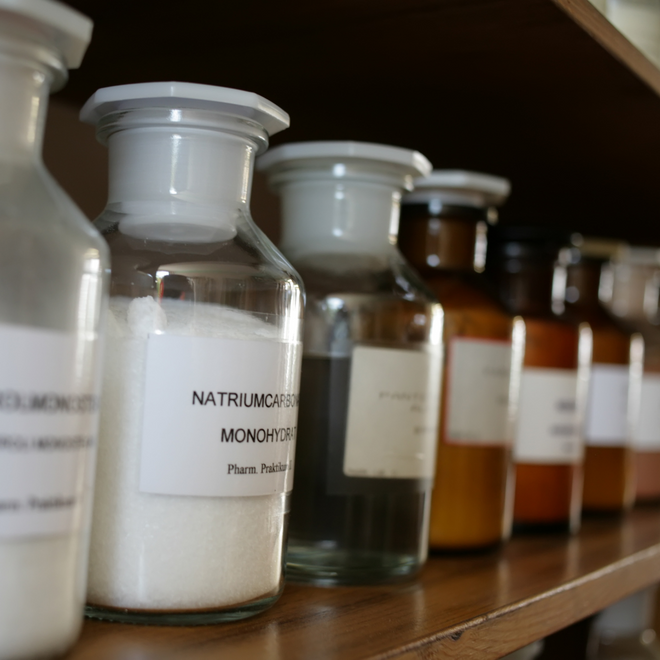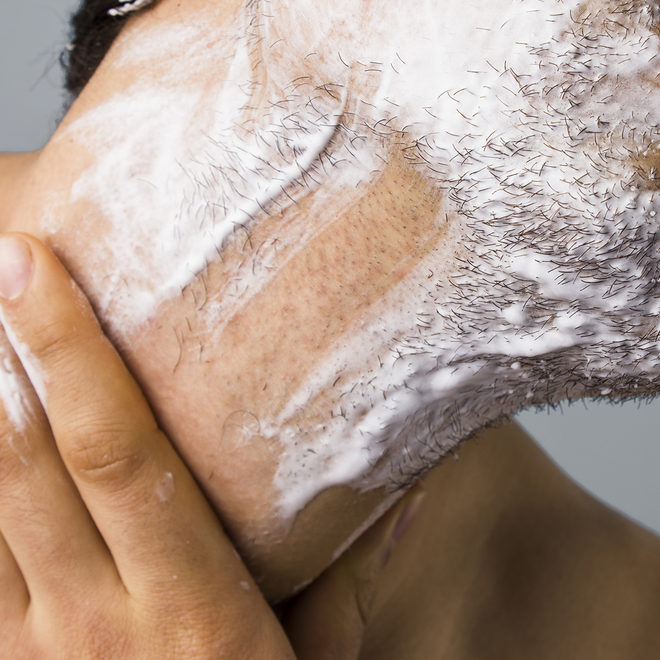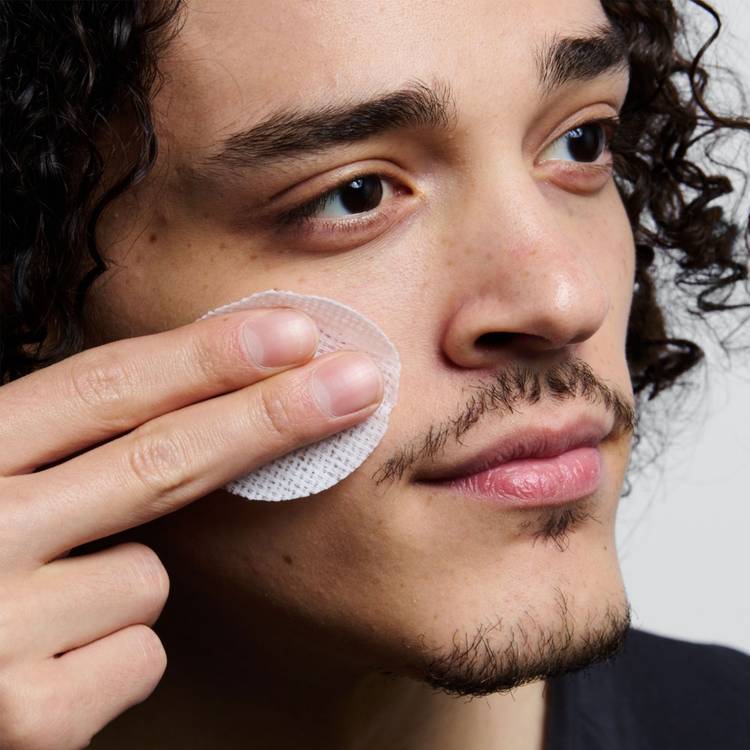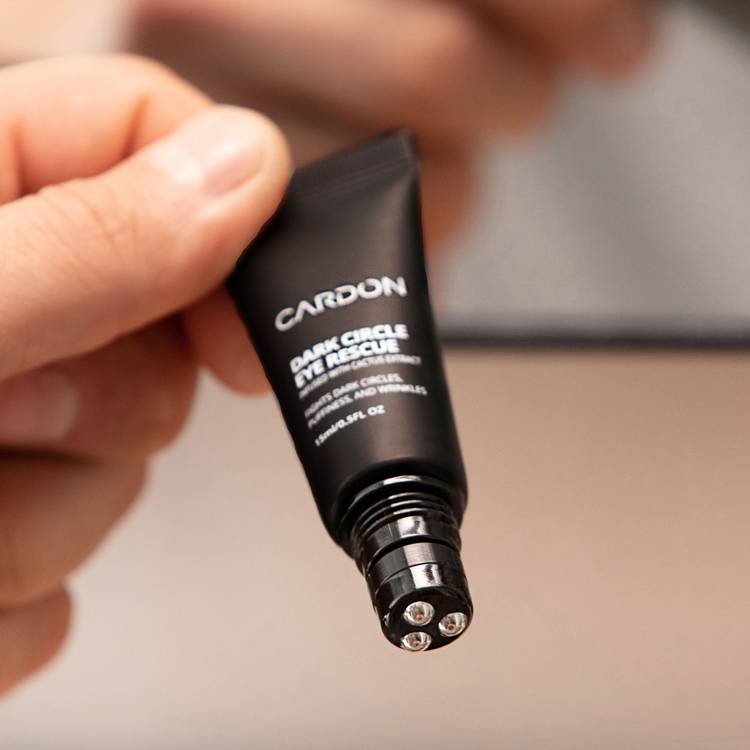How to Reduce Skin Irritation and Redness
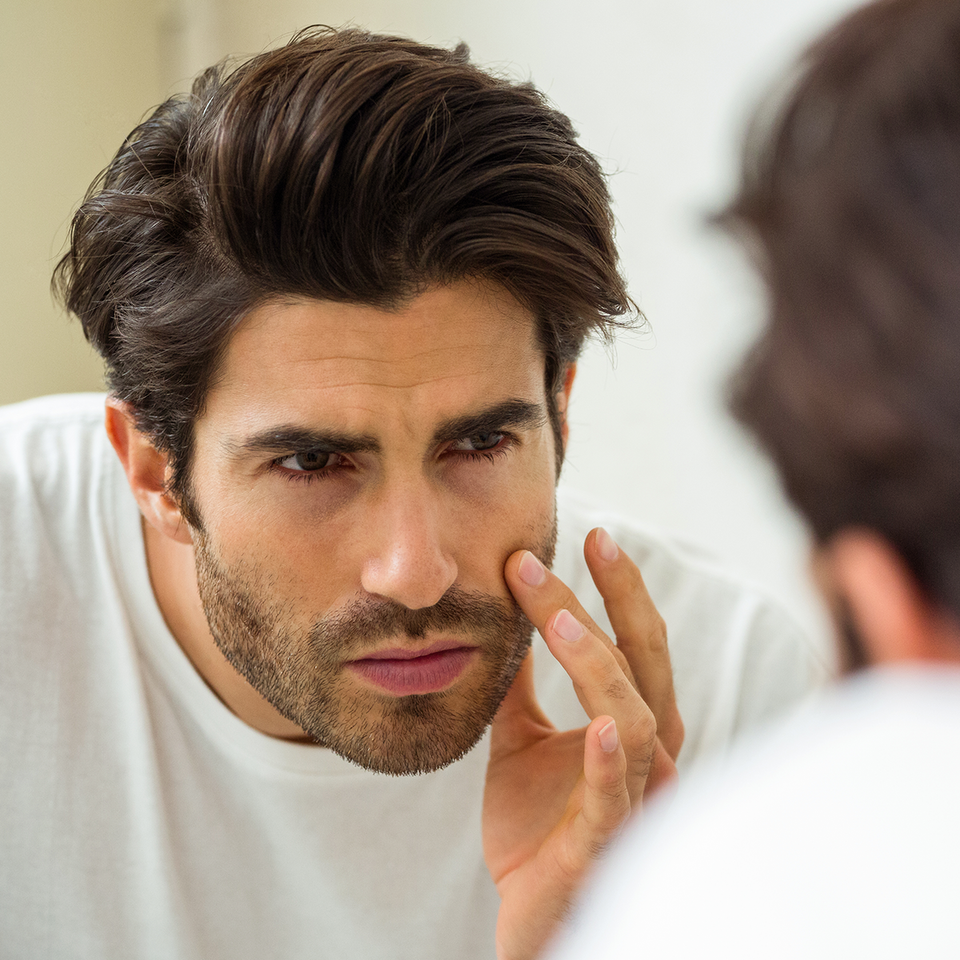
Skin irritation and redness can be caused by a variety of things: a simple shave, friction from a face mask, or a skin condition like eczema or rosacea. Here are some skincare tips on ways to help reduce discomfort and help soothe your skin.
If your skin is sensitive in any way, then you might be hesitant to try new products or unfamiliar ingredients. Sensitivity can be caused by a variety of factors ranging from a simple shave to a new overnight retinol cream.
You might also naturally break out more easily than others, or react harshly to the beating sun and cold, dry winds. Even a sweaty workout can leave you reddened and irritated. Some people may only notice irritation or redness with specific products or behaviors, and are able to isolate the sensitivity. Perhaps it’s an allergy or even a particular condition, like eczema or rosacea. The common thread here is that living with sensitive skin stinks—but only if you haven’t found a soothing, lasting solution.
For that, here is more insight on why skin reacts like this, as well as how you can reduce redness and irritation with your own grooming regimen...once and for all.
Why is my skin red?
There is no universal cause for sensitive skin. It is different from one person to the next, and the term “sensitive” can mean many things as it pertains to skin. It’s not just allergies or skin conditions that causes sensitivities; it could be momentary stress, seasonal dryness, a dull razor, poorly-pH-balanced skincare products, and many more.
People with otherwise “normal” or non-sensitive skin might only experience irritation from shaving. That’s understandable, given that you’re dragging a sharp blade (or five) over your skin, opening the pores, creating tiny micro cuts, and shaving away the top most layer of cells. It’s wise to have a redness-fighting product for this alone. (More later on that.)
There are harsh products that you might use in one-off situations, too, which can lead to irritation in otherwise balanced skin. Exfoliating serums, peels, gritty scrubs, retinol, and more—these are all effective products that often can make skin more sensitive.
It is commonly believed that people with sensitive skin often have a weaker skin barrier than others, and fewer ceramides in the skin to shield against toxins and harsh ingredients. These ceramides also preserve the moisture levels inside the skin, so a lack of them encourages dryness and sharp reactions to many common skincare ingredients, the weather, or even one’s own salty sweat.
How to prevent redness and skin irritation
Try the following things in order to reduce and prevent redness. There is often no single, universal fix, so it’s important to pinpoint when your skin reacts inversely, and adjust your regimen accordingly.
1. Seek Soothing Ingredients: In addition to applying ceramide-rich products, people with sensitive skin should also prioritize ingredients that soothe or calm on contact, like cactus extract, aloe vera, cica (tiger grass), calendula, chamomile.
Also Read: Skincare Benefits of Cactus Extract
2. Shave Smartly: If you shave your face, then it’s important to practice a careful, hygienic shave routine, and to always use fresh, sharp blades as well as pre- and post-shave products that ready and treat the skin. For example, a good pre-shave oil or lotion will create a thin layer over top the skin, to prevent micro cuts and razor drag.


A post shave will quickly soothe, disinfect, and shield the vulnerable, freshly-shaved skin from irritation. You might also consider switching to an electric shaver, which won’t break the surface of the skin and can minimize reactions.
3. Never Forget Sun Protection: SPF is more imperative than ever for people with sensitive skin, and not only as part of a summer skincare regimen. So, get a soothing daily moisturizer—again, with a calming ingredient like cactus extract, which Cardon uses in all of its products. Make sure the moisturizer has SPF of 30 or greater. (Cardon’s SPF 30 daily moisturizer checks all the boxes.) You need to use SPF daily, in order to block the sun’s damaging UV rays. Secondly, this moisturizer will shield your skin against environmental toxins like smog and smoke, which can dry out, irritate, damage, and age the skin.
Shop the product

Daily SPF + Moisturizer
$24.00
4. Avoid Harsh Products: You should also avoid especially irritating skincare products, like harsh exfoliants, cleansers, and high-grade retinols. Sometimes, the skin can adapt to these products and reduce its sensitivity to them, but other times, they leave you rashy, pained, and peely. Retinol in particular can increase the skin’s sensitivity to the sun, which means it might cause more damage than good—whereas it’s designed to reduce signs of aging and reduce acne. As for cleansers, find something that is gentle on skin, and that works hard to remove impurities and unclog pores without deploying any harsh chemicals or drying ingredients into the sensitive skin barrier. That’s something Cardon prioritized when engineering a gentle and purifying clay cleanser. By keeping pores clear and preserving moisture levels, it helps prevent acne as result of clogging or over dryness.
5. Preserve Moisture: Look for products that boost and preserve moisture levels, especially while you sleep. Cardon’s gel moisturizer utilizes cactus extract while also fortifying the skin’s moisture barrier functions—so that it keeps skin hydrated and prevents toxins from getting in. It also helps expedite any healing while you sleep, so that you wake up with fresh, clear skin.
Shop the product

Hydro Boost Gel Moisturizer
$35.00
6. Talk to a Doc: The most important thing you can do, however, is to speak with a board-certified dermatologist about your own specific condition. Advice is never universal when it comes to skin sensitivities. And, while it’s always important to use calming, SPF, and moisture-preserving products, there may be secondary things to consider that are contributing to your own case. You might also discover an underlying condition, like rosacea, eczema, psoriasis, chronic acne, or others. These are not things you can diagnose on your own, so it’s imperative to establish a cadence with your board-certified dermatologist.
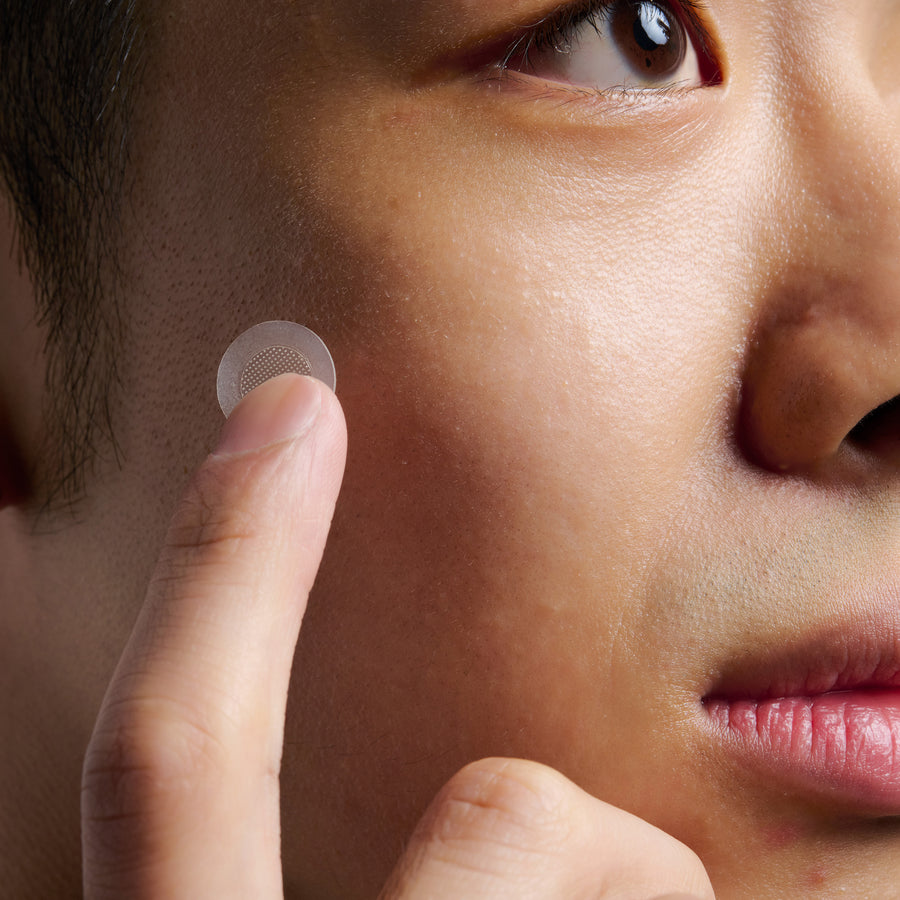

Shop the collection
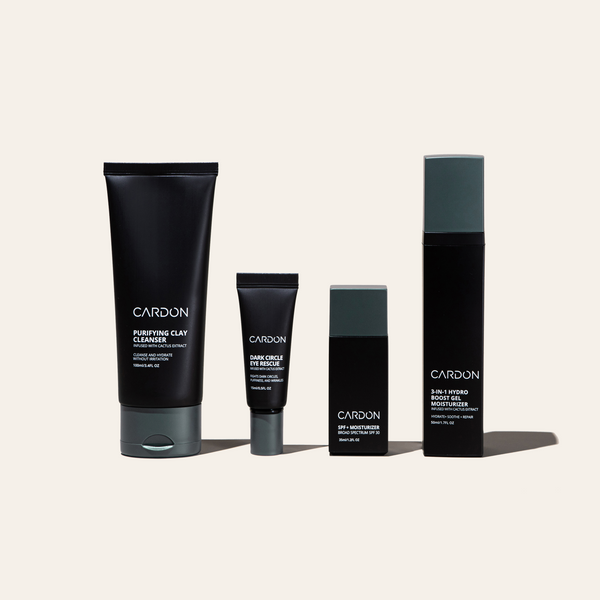
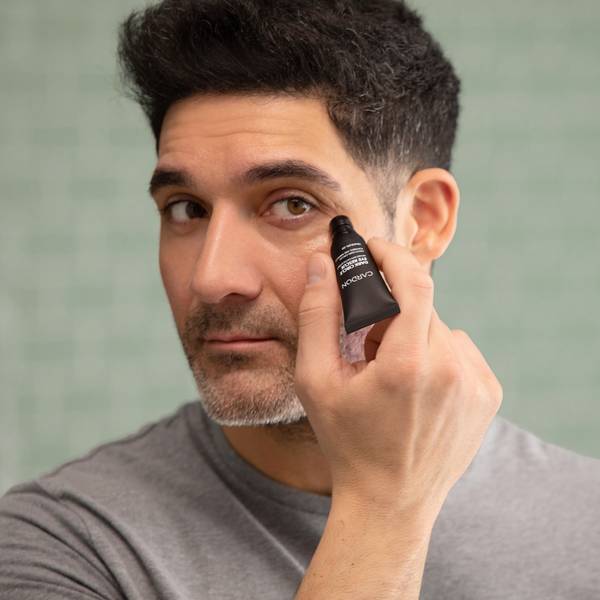
seller
Anti-Aging Skincare Set
good for:
Life comes at you fast. That’s why we developed our Anti-Aging Skincare Set full of just what you need to tackle fine lines, rough texture, and other signs of aging in the skin.
From protecting skin all day long to boosting its ability to repair and rebuild overnight, your past, present, and future selves will thank you.
Includes Steps:
- 01 Dark Circle Eye Rescue
- 02 Purifying Clay Cleanser
- 03 Daily SPF + Moisturizer
- 04 Hydro Boost Gel Moisturizer
Never go empty! Subscribe + Save 10%
Anti-Aging Skincare Set
good for:
Life comes at you fast. That’s why we developed our Anti-Aging Skincare Set full of just what you need to tackle fine lines, rough texture, and other signs of aging in the skin.
From protecting skin all day long to boosting its ability to repair and rebuild overnight, your past, present, and future selves will thank you.
Includes Steps:
- 01 Dark Circle Eye Rescue
- 02 Purifying Clay Cleanser
- 03 Daily SPF + Moisturizer
- 04 Hydro Boost Gel Moisturizer
Never go empty! Subscribe + Save 10%
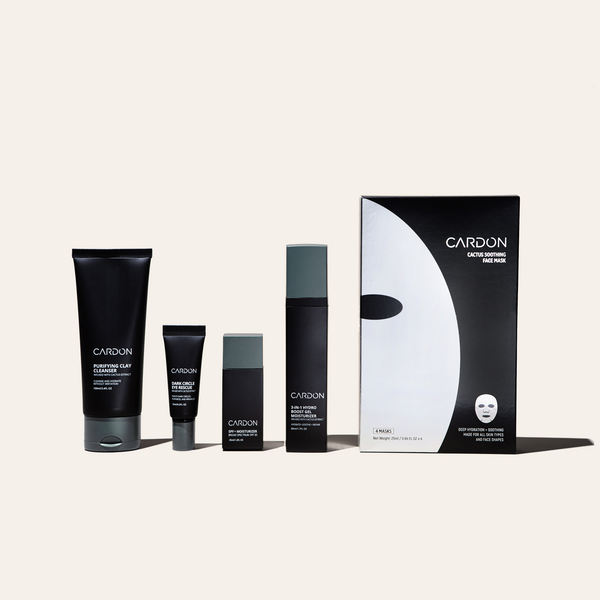
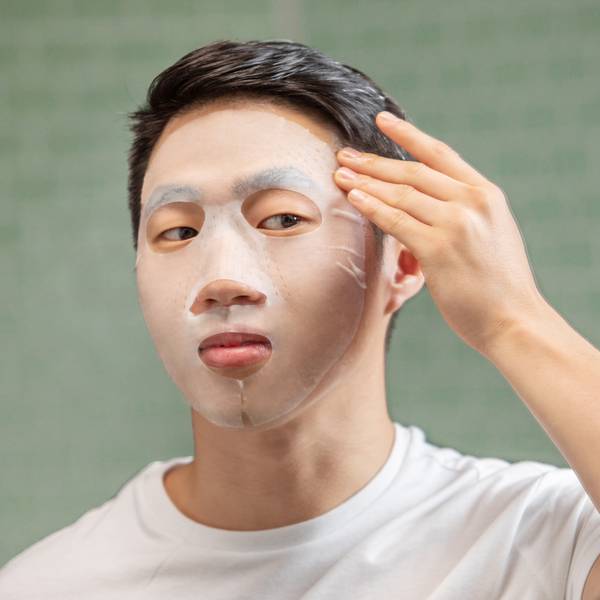
Dry Skin Set
good for:
Skin feeling a bit thirsty? The Dry Skin Set was crafted specifically for those with a dry skin type.
If you deal with flakiness, dull complexion, visible fine lines, red patches, or any combination of the above, this set was made for you. This is all you need to hydrate your skin—and keep it hydrated.
Includes Steps:
- 01
- 02 Dark Circle Eye Rescue
- 03 Daily SPF + Moisturizer
- 04 Hydro Boost Gel Moisturizer
- 05 Cactus Soothing Face Mask
Never go empty! Subscribe + Save 10%
Dry Skin Set
good for:
Skin feeling a bit thirsty? The Dry Skin Set was crafted specifically for those with a dry skin type.
If you deal with flakiness, dull complexion, visible fine lines, red patches, or any combination of the above, this set was made for you. This is all you need to hydrate your skin—and keep it hydrated.
Includes Steps:
- 01
- 02 Dark Circle Eye Rescue
- 03 Daily SPF + Moisturizer
- 04 Hydro Boost Gel Moisturizer
- 05 Cactus Soothing Face Mask
Never go empty! Subscribe + Save 10%
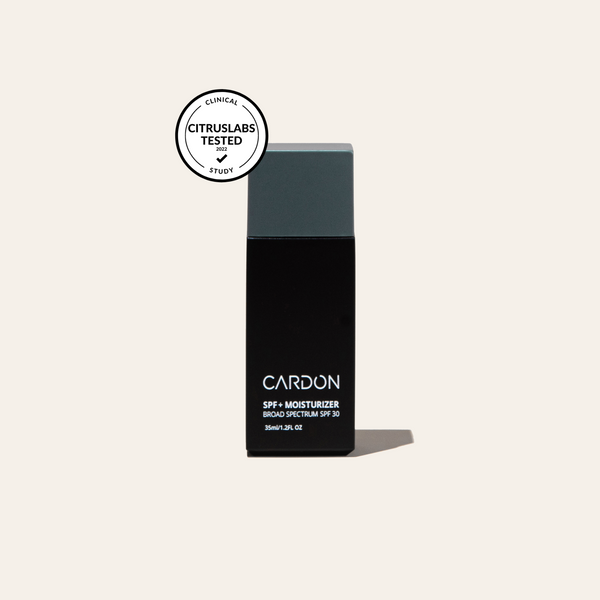
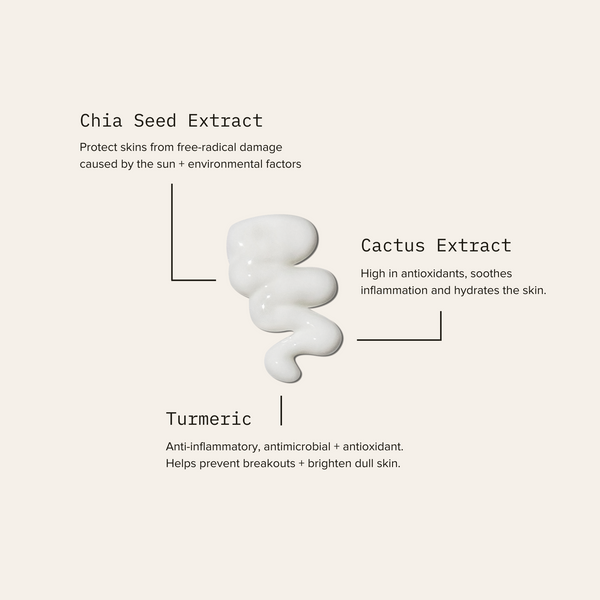
Daily SPF + Moisturizer
good for:
We’re playing favorites—this is the #1 most important step in your skincare routine. Stave off sun damage for healthy, youthful skin for years to come with our Daily SPF + Moisturizer, acclaimed best lightweight moisturizer with SPF by GQ!
Its fast-absorbing, lightweight formula uses Cactus and Chia Seed Extract to provide all-day hydration, plus Broad Spectrum SPF 30 to protect against UVA and UVB rays with ZERO residue or white cast.
“After trying several different brands, I finally found a product I like. It's lightweight, not sticky, and has a very subtle, fresh scent. Will definitely order again. I highly recommend this product.” - Sara T.
Daily SPF + Moisturizer
good for:
We’re playing favorites—this is the #1 most important step in your skincare routine. Stave off sun damage for healthy, youthful skin for years to come with our Daily SPF + Moisturizer, acclaimed best lightweight moisturizer with SPF by GQ!
Its fast-absorbing, lightweight formula uses Cactus and Chia Seed Extract to provide all-day hydration, plus Broad Spectrum SPF 30 to protect against UVA and UVB rays with ZERO residue or white cast.
“After trying several different brands, I finally found a product I like. It's lightweight, not sticky, and has a very subtle, fresh scent. Will definitely order again. I highly recommend this product.” - Sara T.
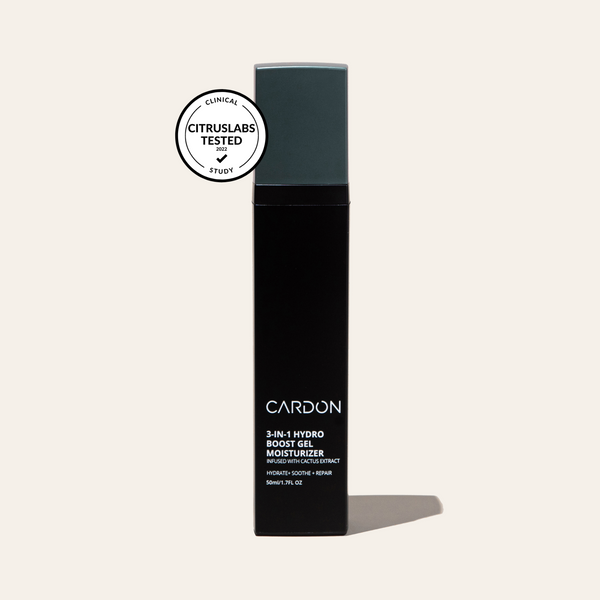
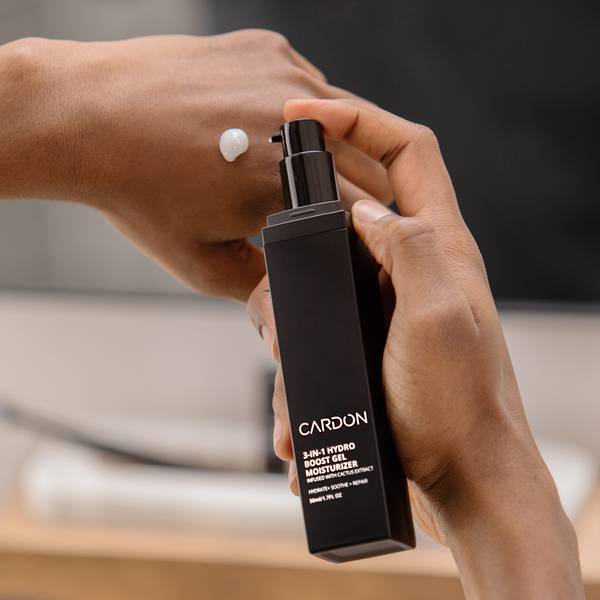
Hydro Boost Gel Moisturizer
good for:
Like a night cap for your skin, our Hydro Boost Gel Moisturizer is the ideal way to finish your evening.
This 3-in-1 gel moisturizer uses Cactus Extract and Rosehip Oil to put in the work while you snooze—hydrating, soothing, and repairing your skin all night long.
“This easily became part of my nightly routine. I've started to notice my face looking healthier and smoother. As a 32 y/o, you start to notice wrinkles creeping in, this helps me keep them at bay.” - Andrew S.
Hydro Boost Gel Moisturizer
good for:
Like a night cap for your skin, our Hydro Boost Gel Moisturizer is the ideal way to finish your evening.
This 3-in-1 gel moisturizer uses Cactus Extract and Rosehip Oil to put in the work while you snooze—hydrating, soothing, and repairing your skin all night long.
“This easily became part of my nightly routine. I've started to notice my face looking healthier and smoother. As a 32 y/o, you start to notice wrinkles creeping in, this helps me keep them at bay.” - Andrew S.
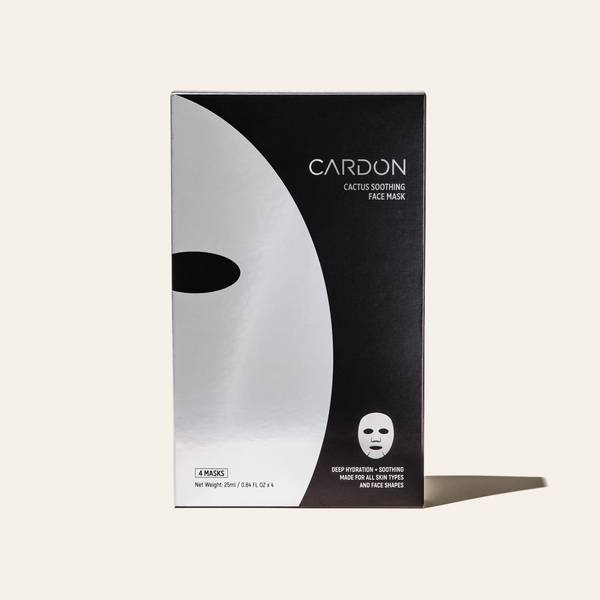
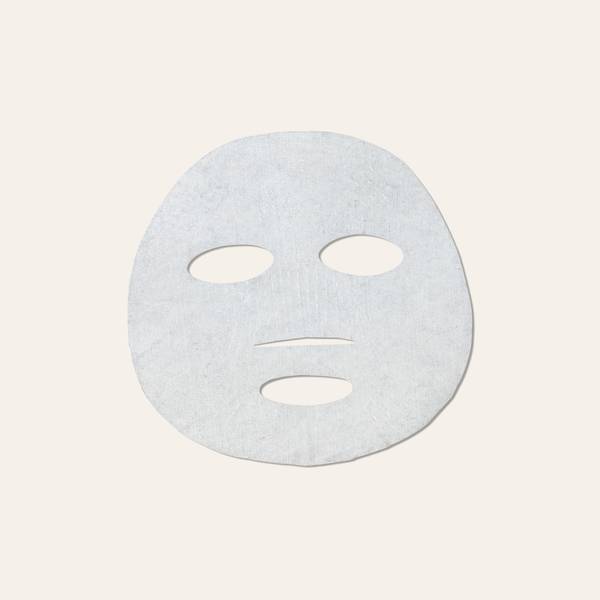
Cactus Soothing Face Mask
good for:
Everyone deserves some self-care time—may we recommend Cactus Soothing Face Mask and chill?
This immediate hydration boost is supercharged with healing ingredients like Cactus Extract and Cica to soothe redness and irritation while reducing fine lines. Perfect for a post-shave treatment or whenever you need a moment for you.
“Stress and late nights working have left my skin looking a bit rough, but this mask was perfect for some at-home spa relaxation. My skin definitely looks a lot more moisturized and refreshed.” - Melody C.
Cactus Soothing Face Mask
good for:
Everyone deserves some self-care time—may we recommend Cactus Soothing Face Mask and chill?
This immediate hydration boost is supercharged with healing ingredients like Cactus Extract and Cica to soothe redness and irritation while reducing fine lines. Perfect for a post-shave treatment or whenever you need a moment for you.
“Stress and late nights working have left my skin looking a bit rough, but this mask was perfect for some at-home spa relaxation. My skin definitely looks a lot more moisturized and refreshed.” - Melody C.
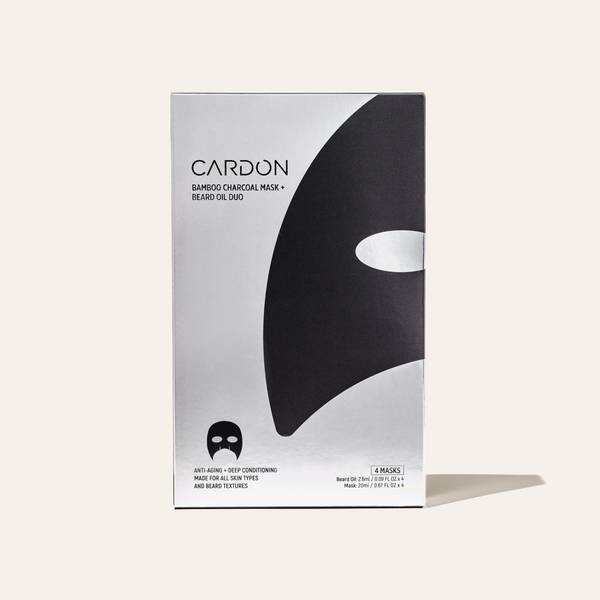
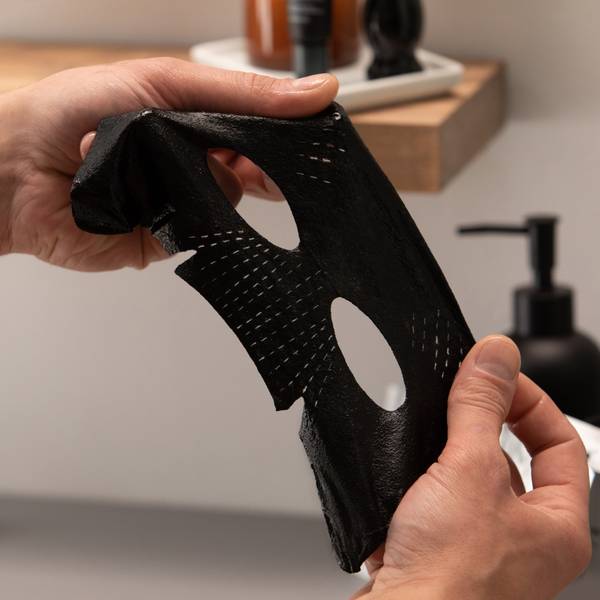
GIFT
Bamboo Charcoal Sheet Mask + Beard Oil
good for:
Often imitated, never duplicated, this innovative sheet mask is the first of its kind and an Ask Men Grooming award winner in the Best Sheet Mask category!
Half mask, half beard treatment, the Bamboo Charcoal Sheet Mask + Beard Oil gives each section of skin (and beard) just what it needs: A detoxifying, hydrating charcoal-infused mask for your skin and a nourishing beard oil blend for the ultimate beard care. Plus, the mask is designed with expandable nose slits to fit any face size and shape.
“I really enjoyed this face mask from Cardon. The beard oil applies easily and the half mask for your cheeks, nose, and forehead fits well and stays in place. My skin looks and feels great after removing the mask. Well done, Cardon!” - Tyler S.
Bamboo Charcoal Sheet Mask + Beard Oil
good for:
Often imitated, never duplicated, this innovative sheet mask is the first of its kind and an Ask Men Grooming award winner in the Best Sheet Mask category!
Half mask, half beard treatment, the Bamboo Charcoal Sheet Mask + Beard Oil gives each section of skin (and beard) just what it needs: A detoxifying, hydrating charcoal-infused mask for your skin and a nourishing beard oil blend for the ultimate beard care. Plus, the mask is designed with expandable nose slits to fit any face size and shape.
“I really enjoyed this face mask from Cardon. The beard oil applies easily and the half mask for your cheeks, nose, and forehead fits well and stays in place. My skin looks and feels great after removing the mask. Well done, Cardon!” - Tyler S.
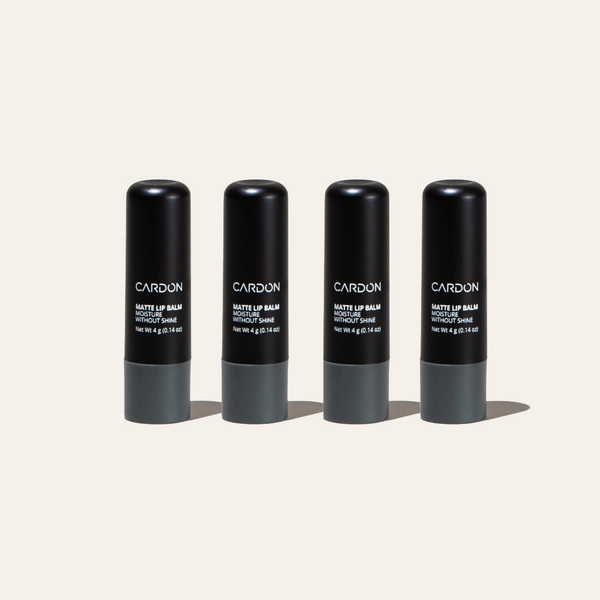
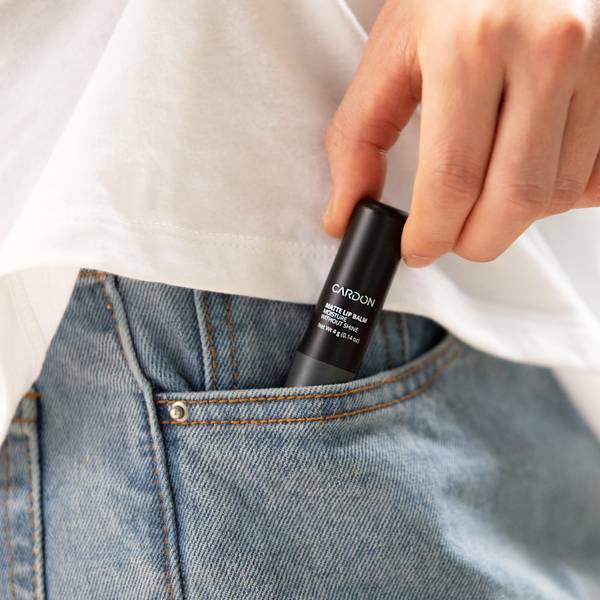
Matte Lip Balm (4 Pack)
good for:
Deeply hydrate, smooth and soothe your dry, chapped lips on-the-go without the shine. Infused with Cactus Extract and Ceramides, this moisturizing lip balm may become your best friend after one use. Comes in packs of four.
“It's a good practical lip balm. Nice packaging.” - Stephen N.
Matte Lip Balm (4 Pack)
good for:
Deeply hydrate, smooth and soothe your dry, chapped lips on-the-go without the shine. Infused with Cactus Extract and Ceramides, this moisturizing lip balm may become your best friend after one use. Comes in packs of four.
“It's a good practical lip balm. Nice packaging.” - Stephen N.
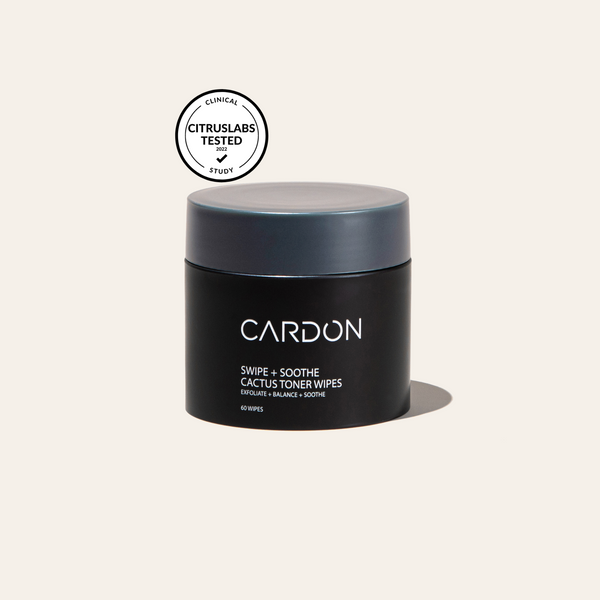
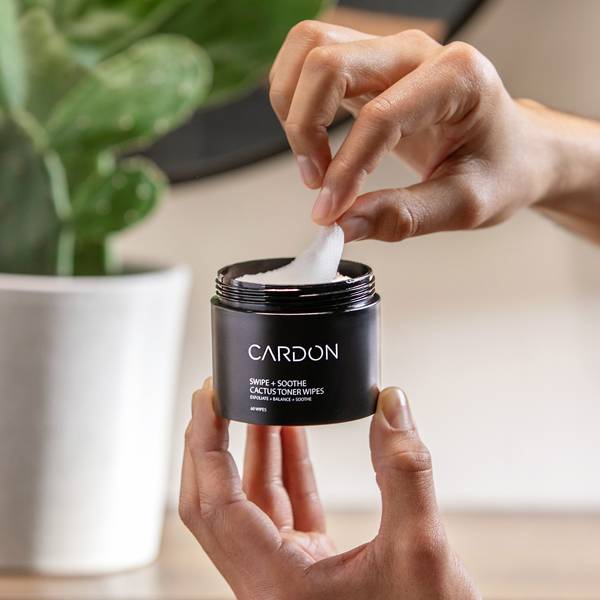
Exfoliating Facial Toner Wipes
good for:
After a long, busy day you just want to sit back, relax, and crack open—our biodegradable Exfoliating Facial Toner Wipes.
Wipe the stress and grime away with our Exfoliating Facial Toner Wipes, which use PHAs and caffeine to unclog pores, balance pH, and soothe the skin all in one easy step. No water needed.
Due to demand, this product is temporarily out of stock. Click "Notify Me" below to be the first to know when it's back!
Exfoliating Facial Toner Wipes
good for:
After a long, busy day you just want to sit back, relax, and crack open—our biodegradable Exfoliating Facial Toner Wipes.
Wipe the stress and grime away with our Exfoliating Facial Toner Wipes, which use PHAs and caffeine to unclog pores, balance pH, and soothe the skin all in one easy step. No water needed.
Due to demand, this product is temporarily out of stock. Click "Notify Me" below to be the first to know when it's back!
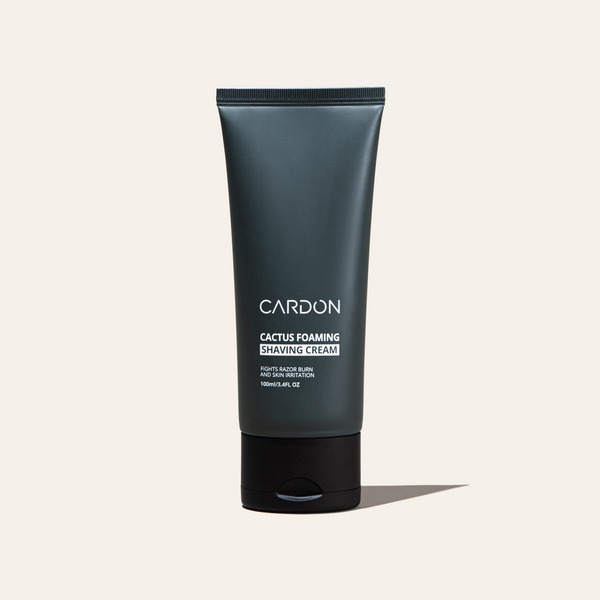
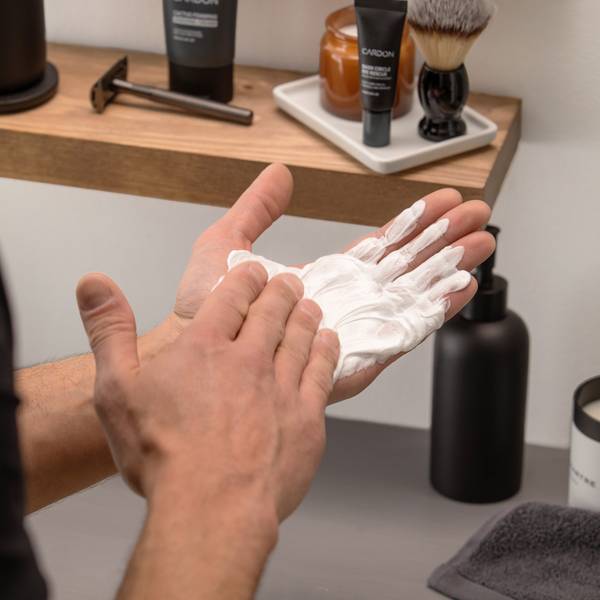
Cactus Foaming Shaving Cream
good for:
This bathroom cabinet staple is a cut above the rest. The Cactus Foaming Shaving Cream for men delivers a close, comfortable shave every time—without having to worry about nicks, razor burns, irritation, and ingrowns.
Our rich foam uses Cactus Extract and Chamomile to create a cushion-like layer to soothe the skin. Plus, you’ll shave some time since this also doubles as a face cleanser.
Due to demand, this product is temporarily out of stock. Click "Notify Me" below to be the first to know when it's back!
Cactus Foaming Shaving Cream
good for:
This bathroom cabinet staple is a cut above the rest. The Cactus Foaming Shaving Cream for men delivers a close, comfortable shave every time—without having to worry about nicks, razor burns, irritation, and ingrowns.
Our rich foam uses Cactus Extract and Chamomile to create a cushion-like layer to soothe the skin. Plus, you’ll shave some time since this also doubles as a face cleanser.
Due to demand, this product is temporarily out of stock. Click "Notify Me" below to be the first to know when it's back!
Cardon Products Are
Easy to Use
We never create two products when we can achieve the same results with one. Cardon products are designed to be easy to use every day.
Backed By Korean Innovation
Korean R&D is two decades ahead of the rest of the world. Cardon products use the highest quality, most effective ingredients out there.
Non-Toxic
Finally, an ingredient label you can feel good about. Every ingredient in Cardon products is good for your skin, and easy on the mind.


.png?v=1671640176423w_600)
